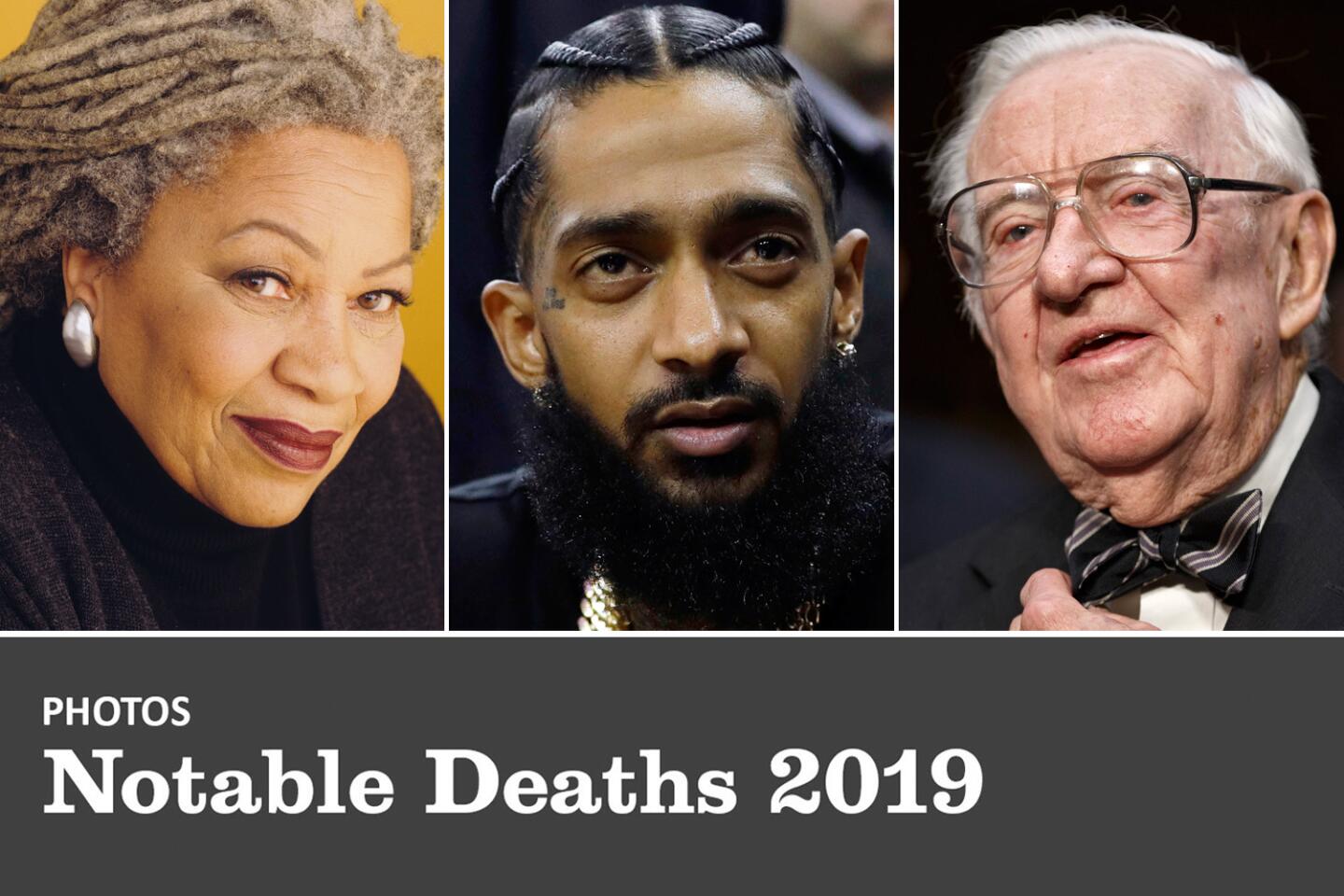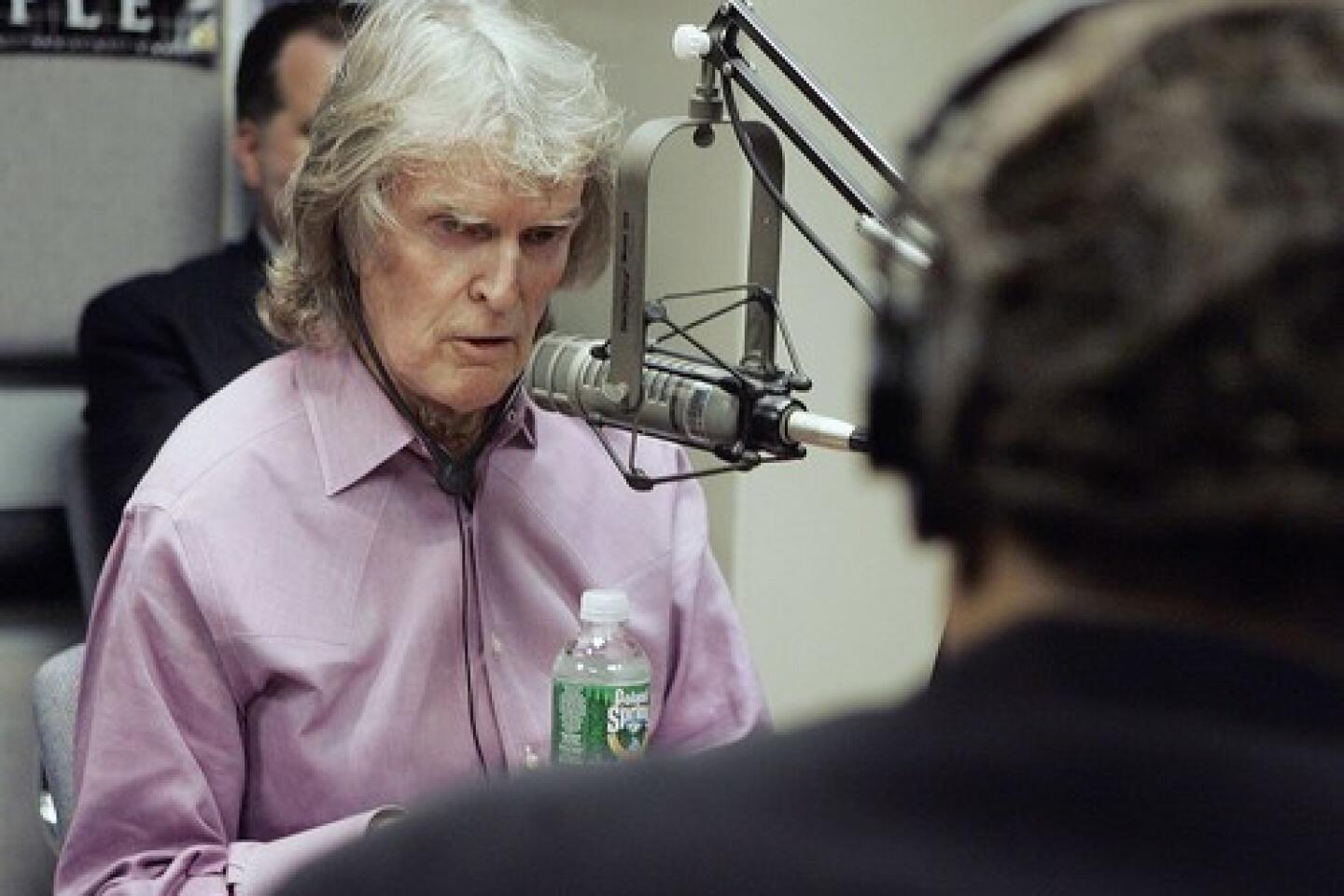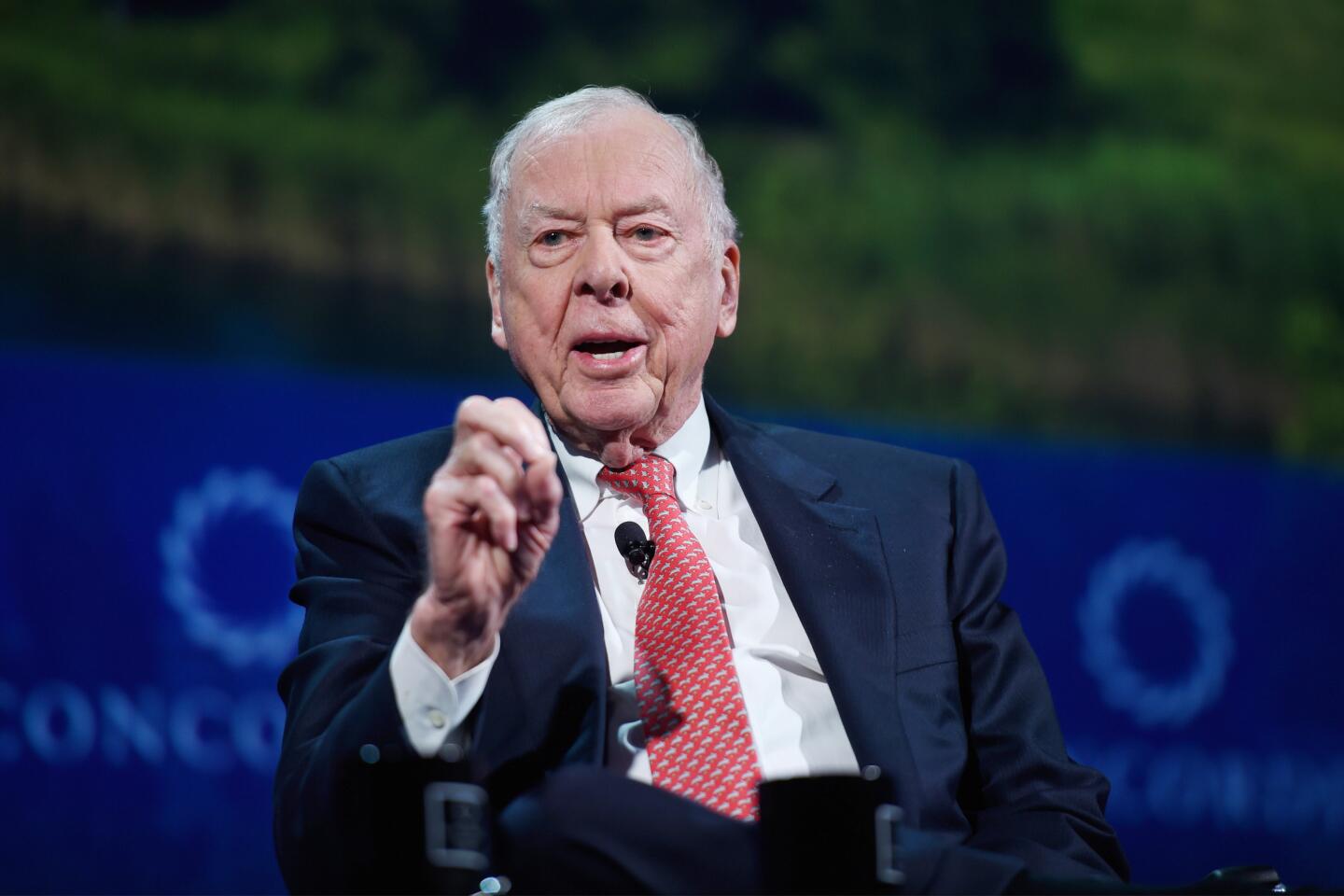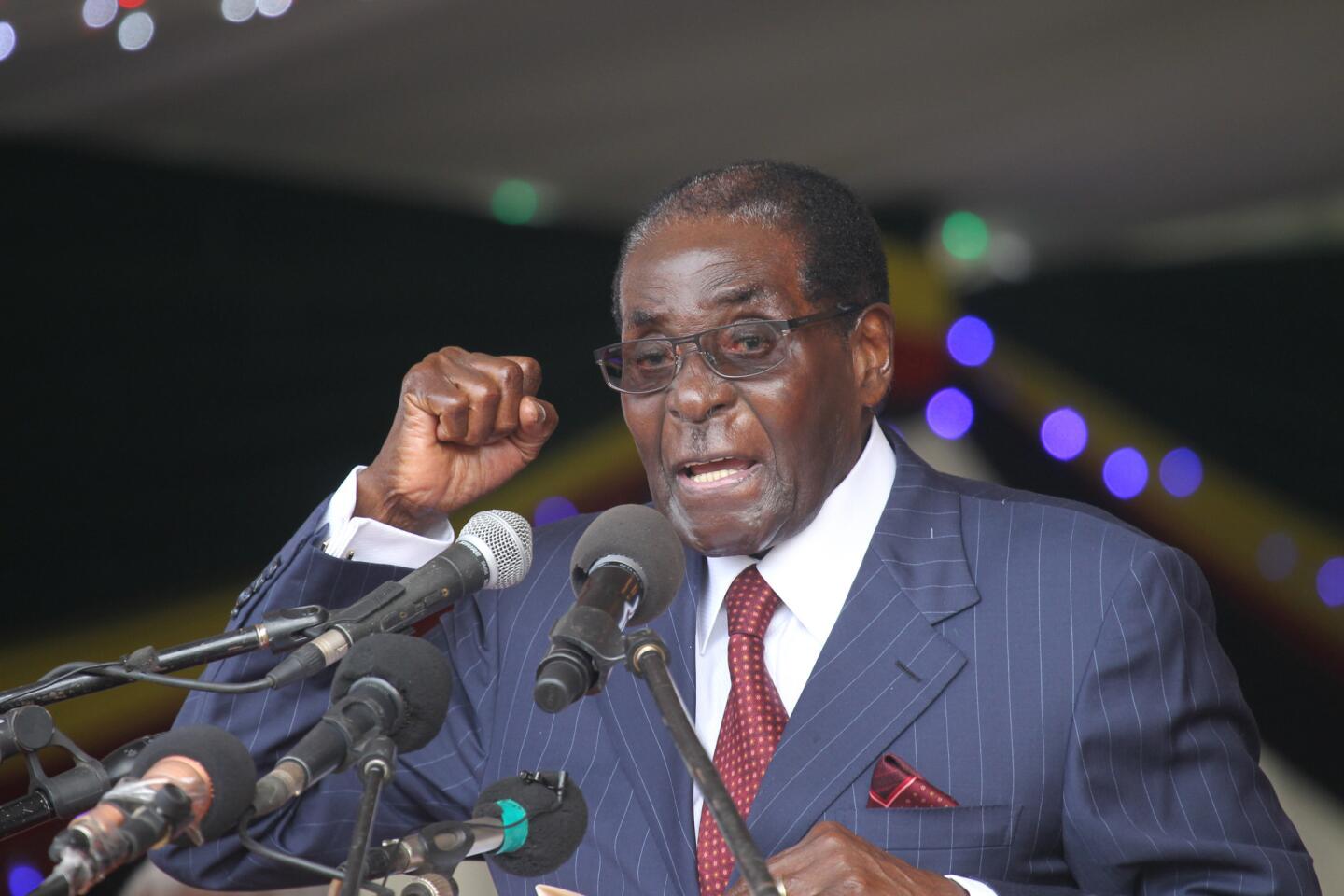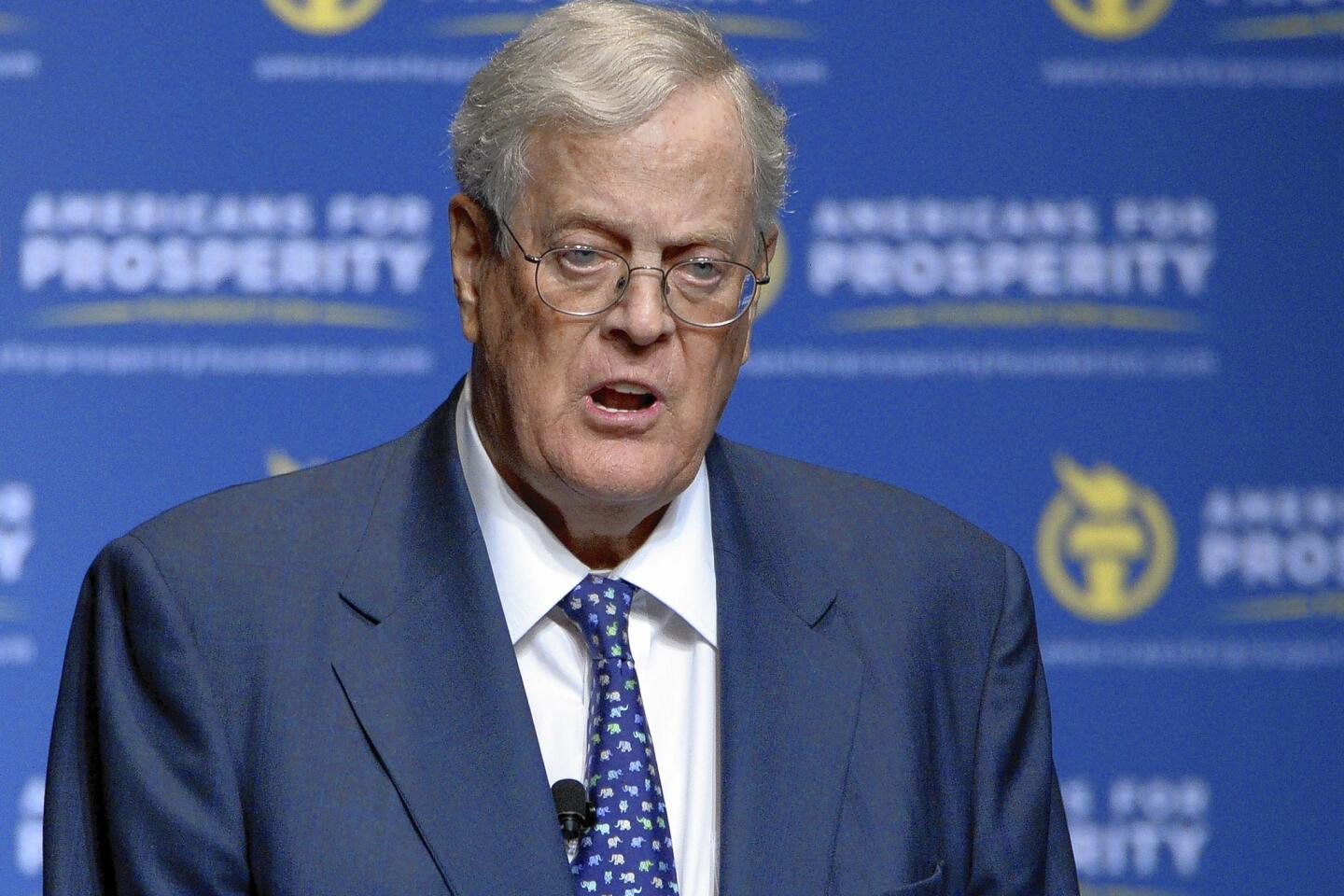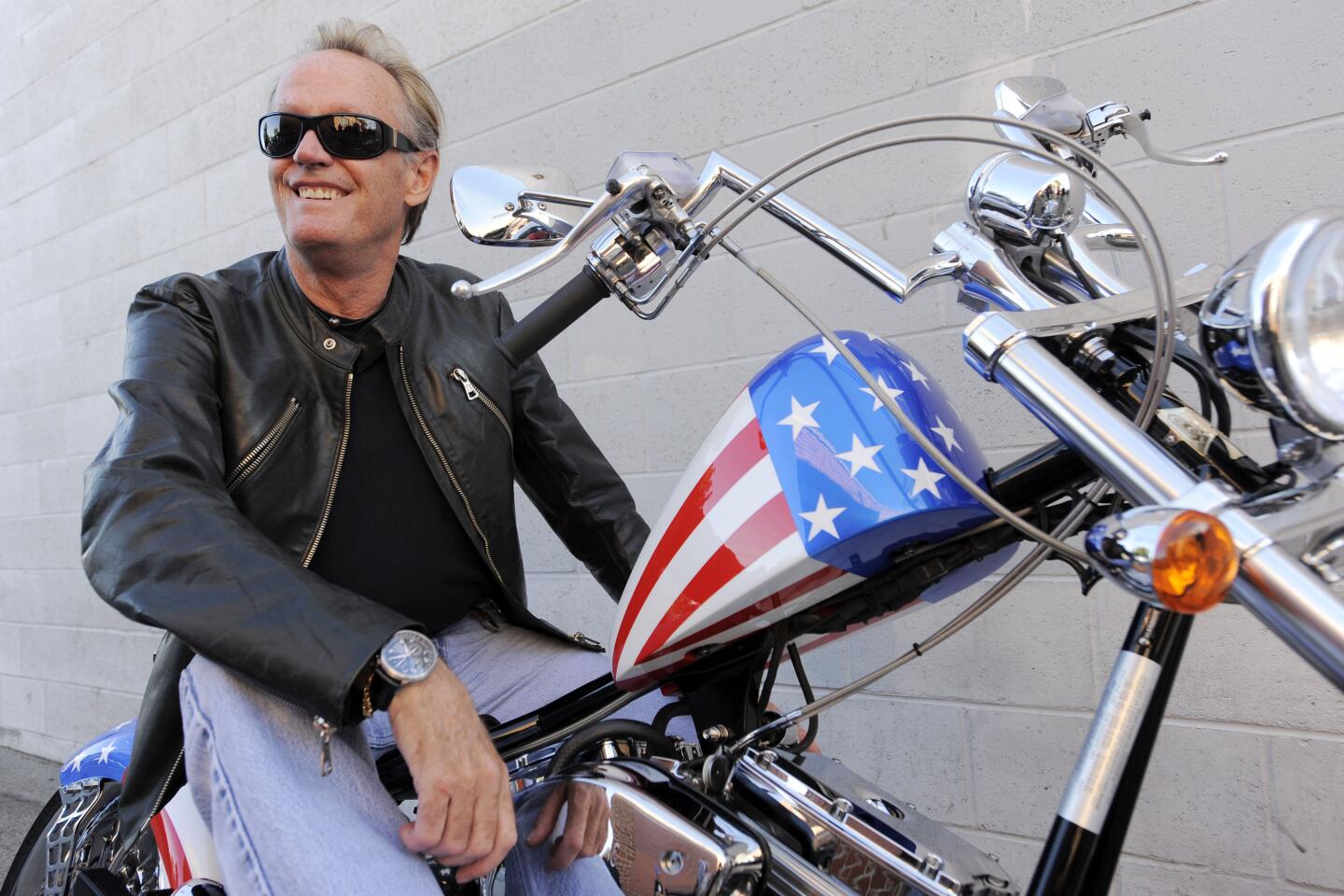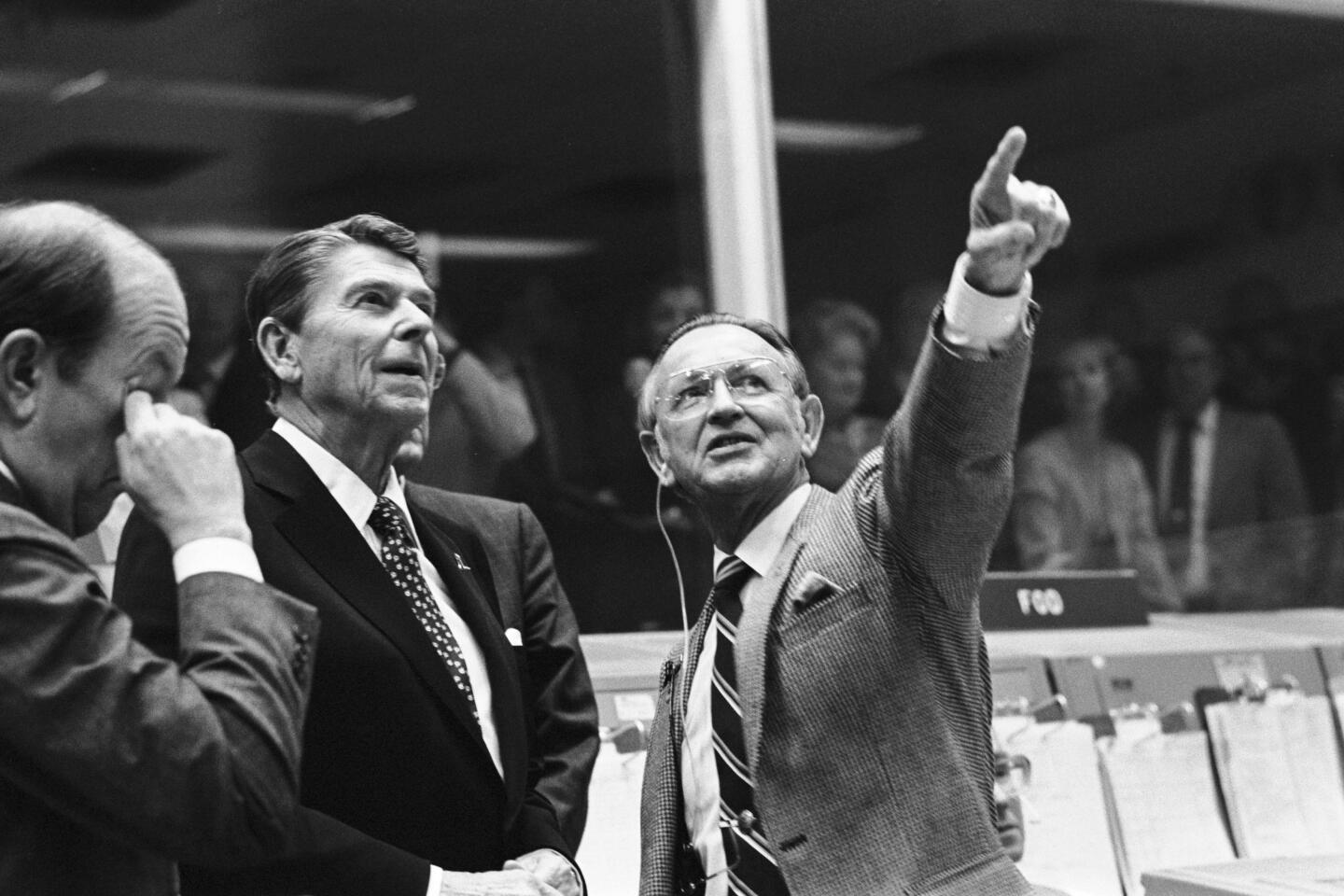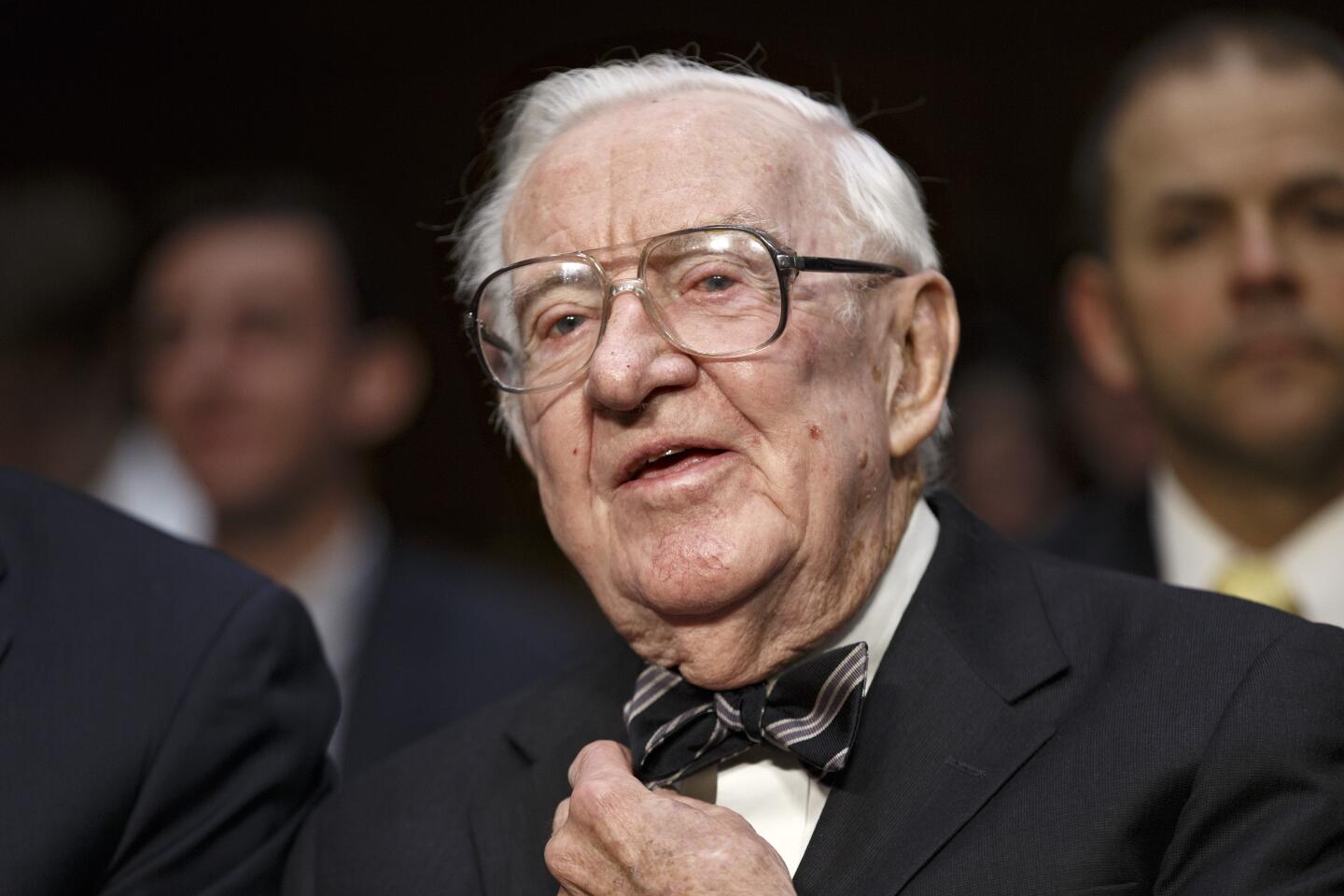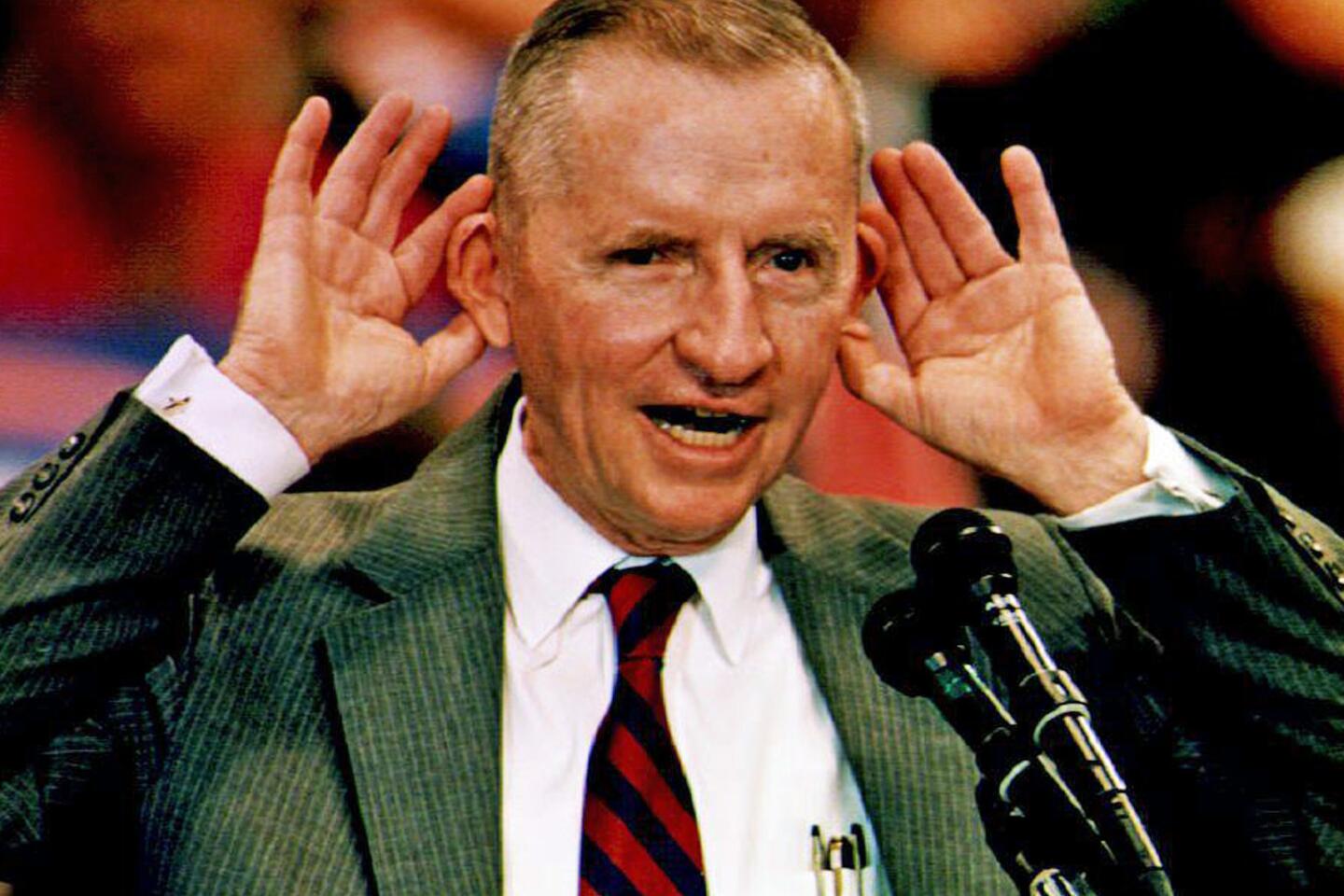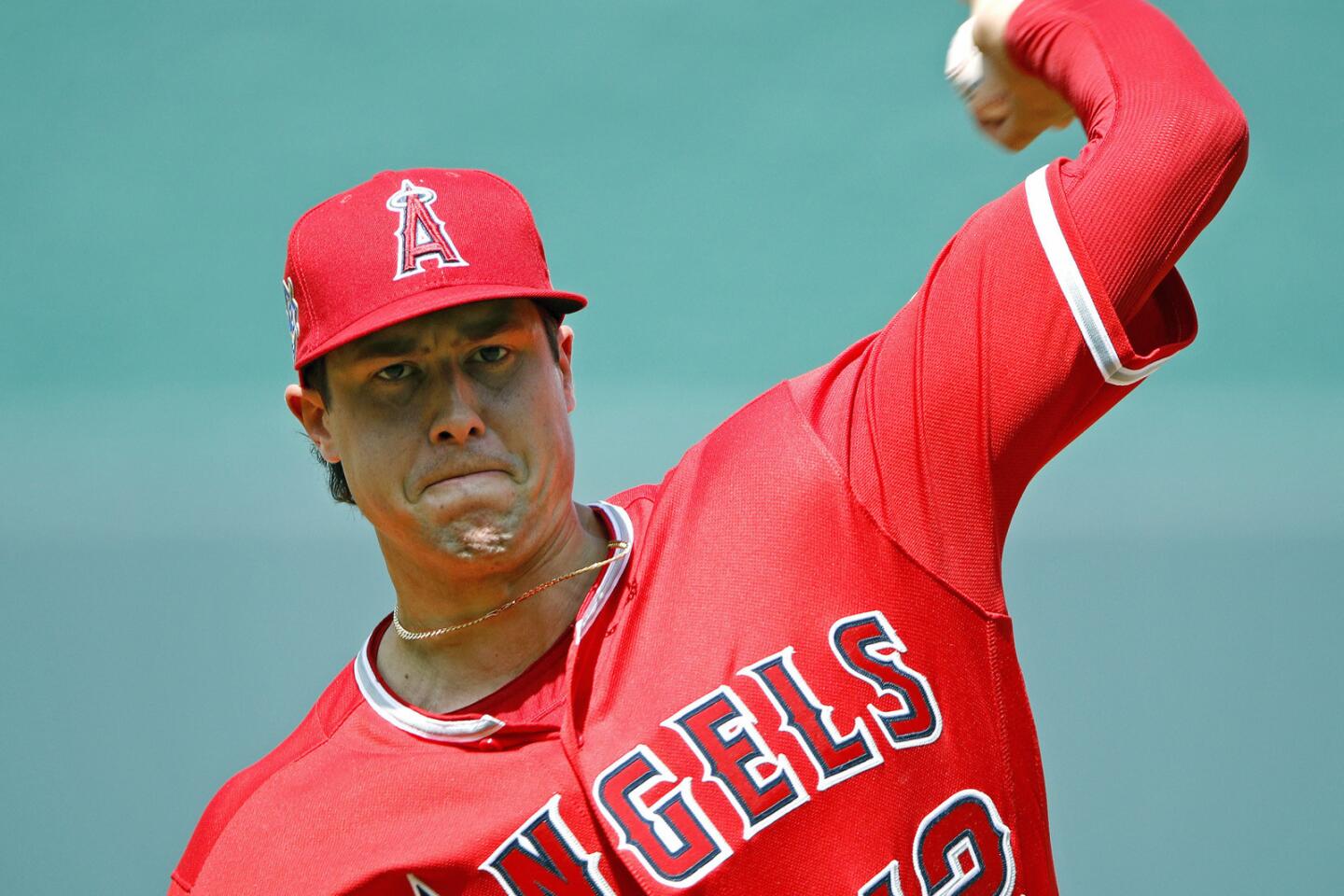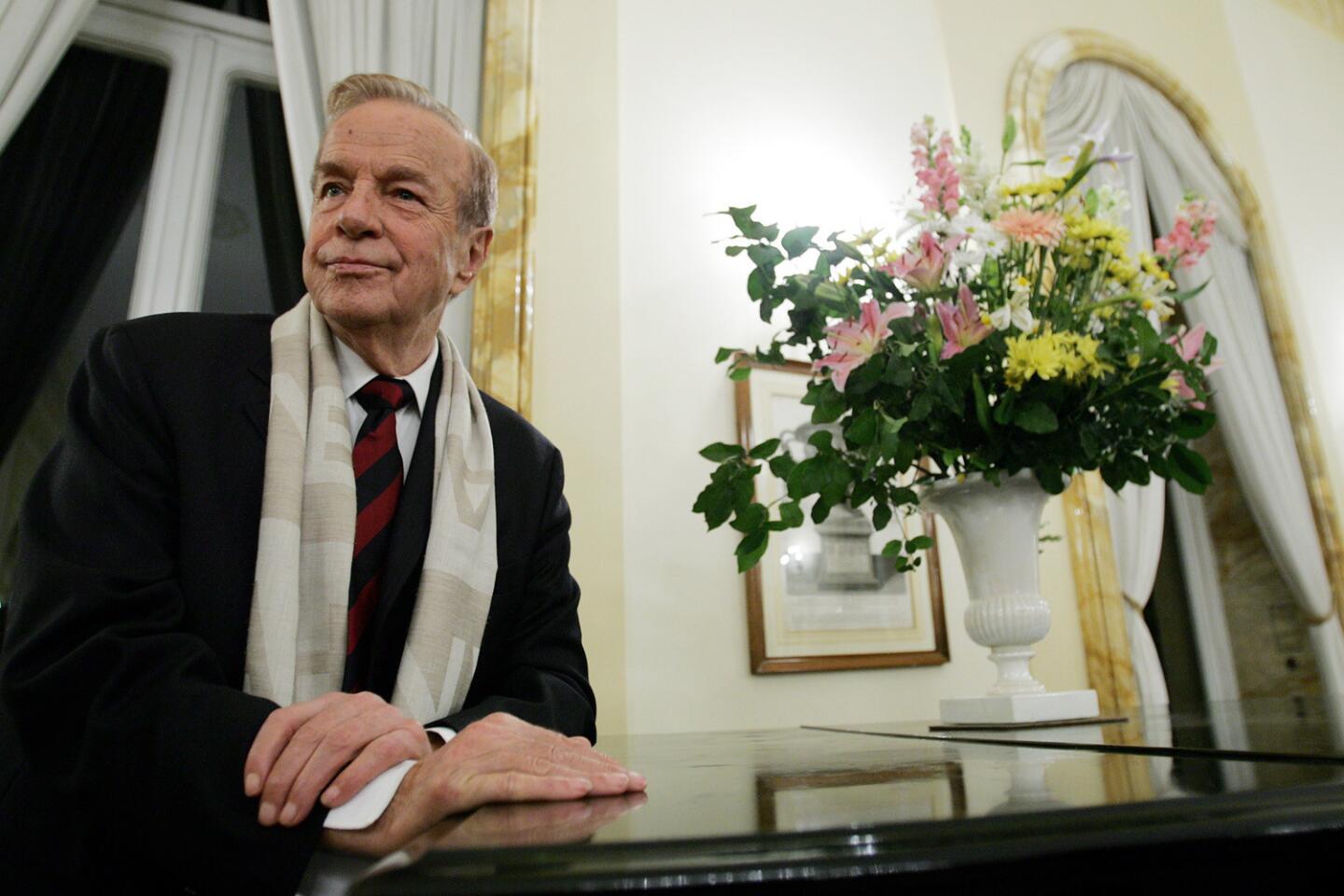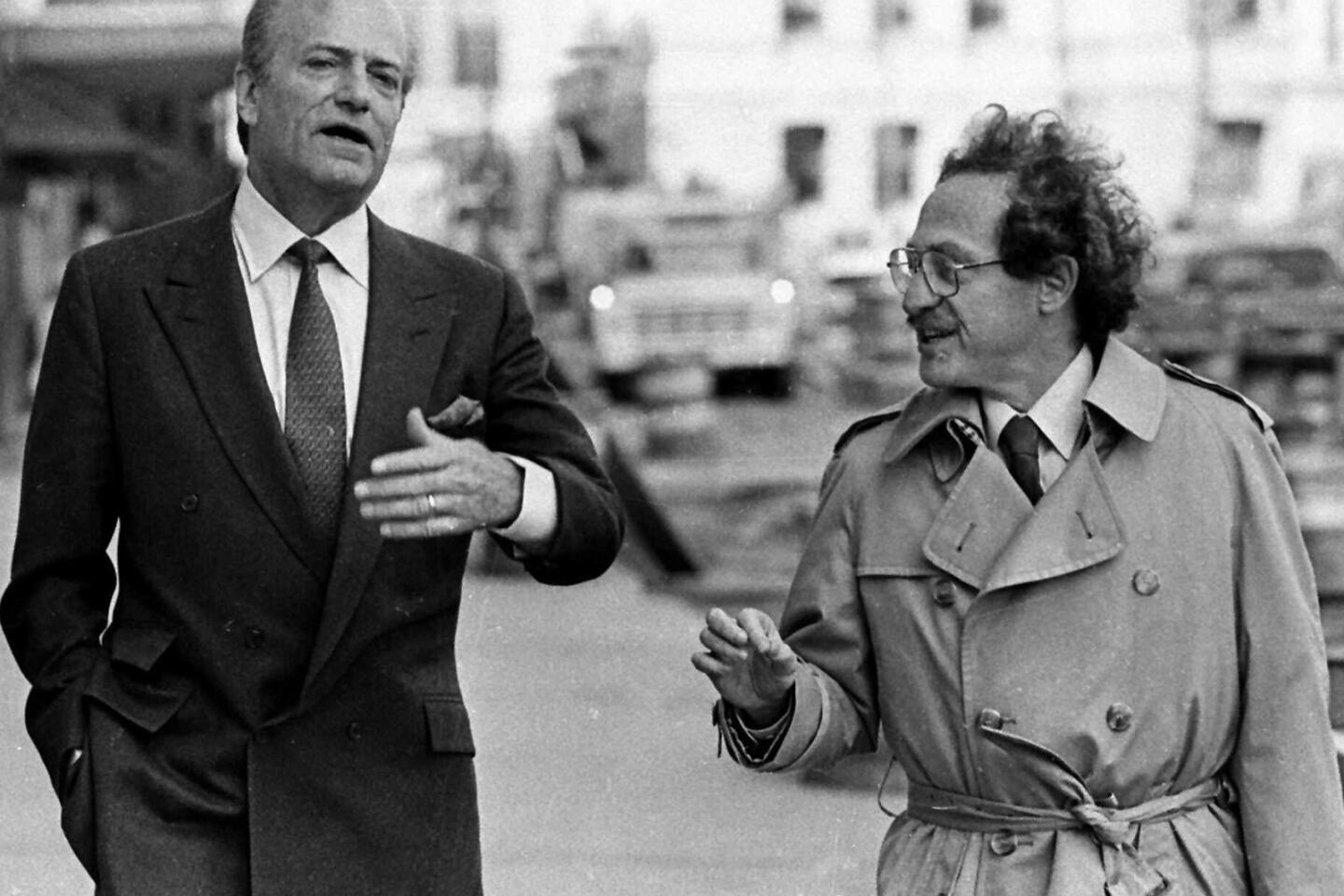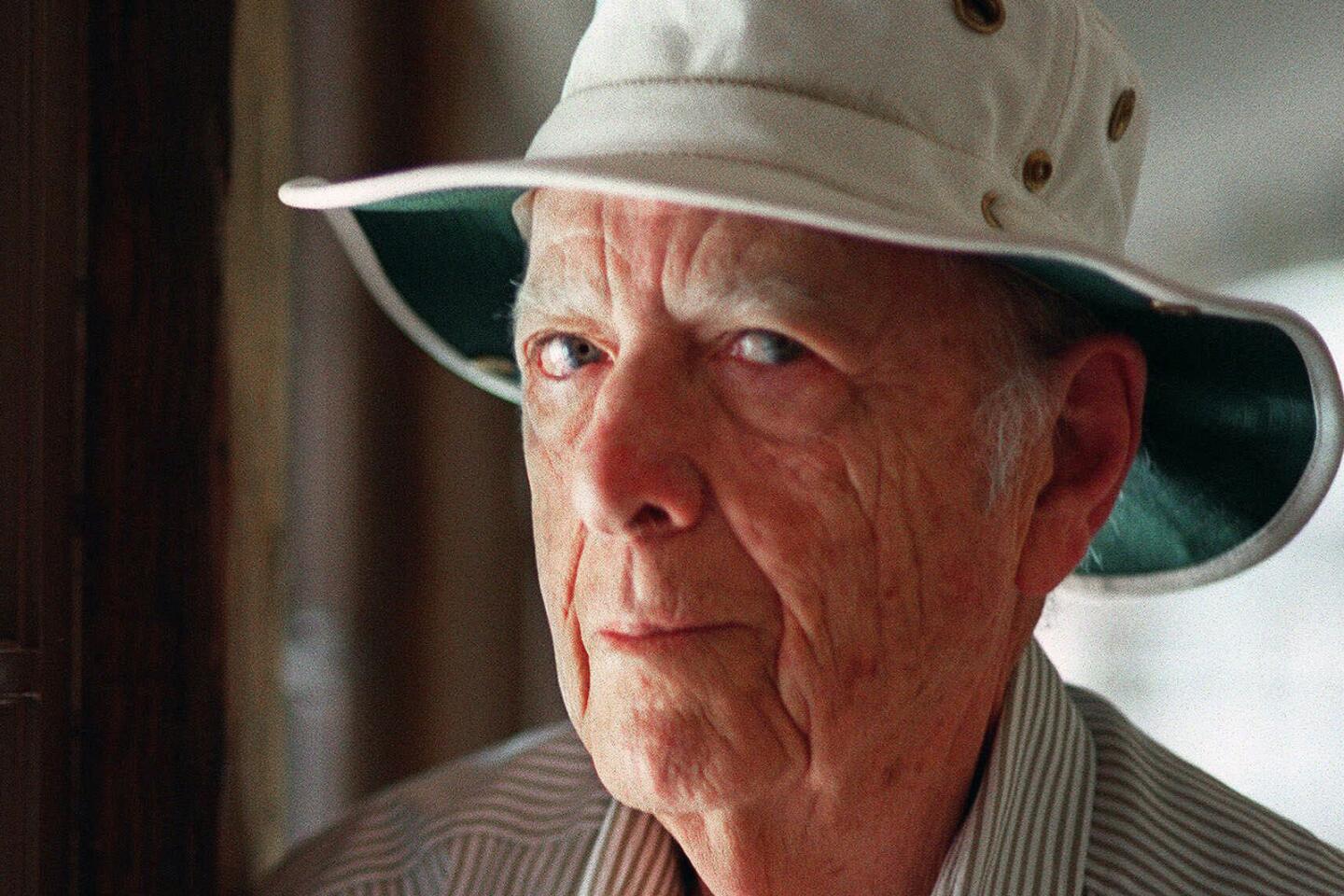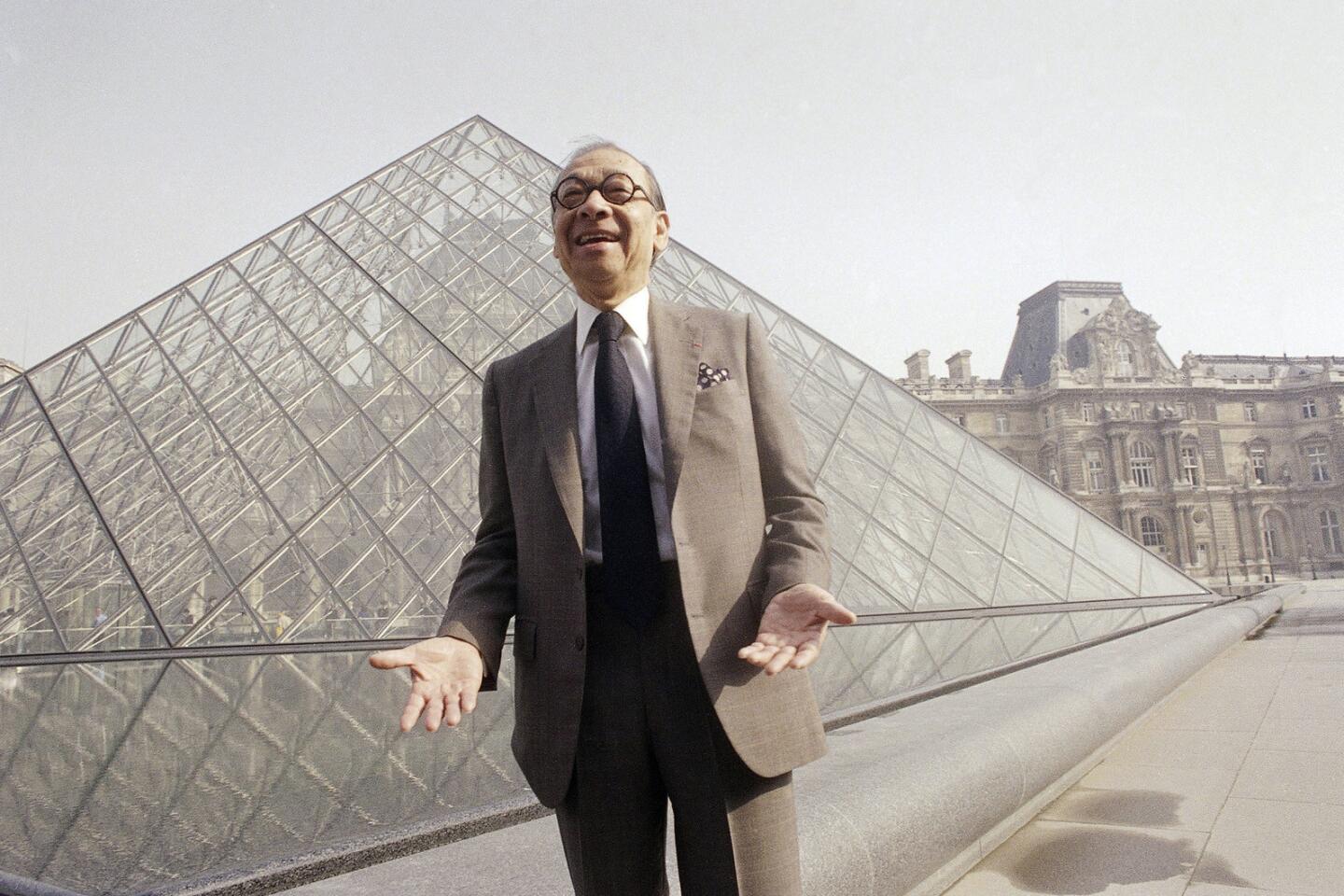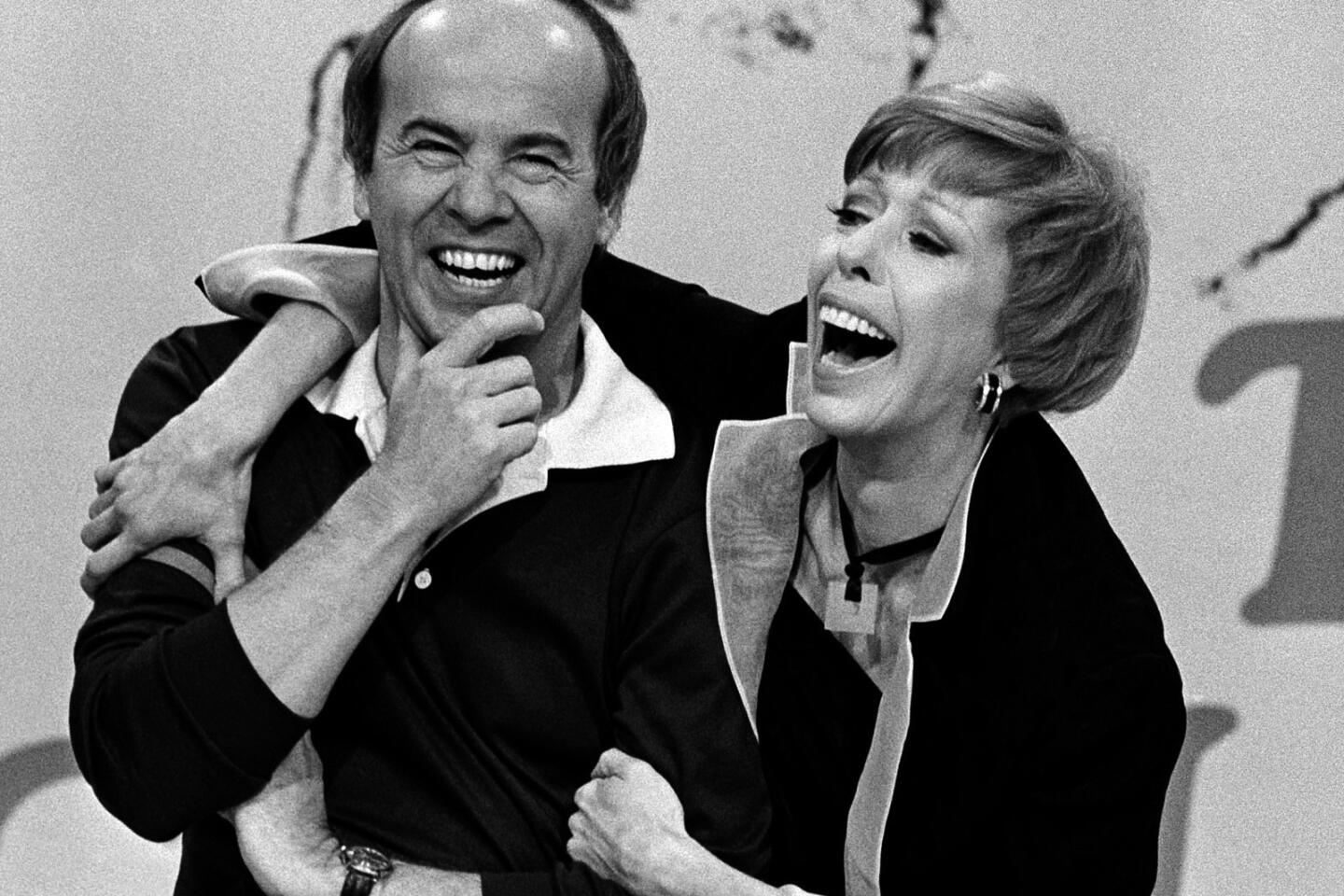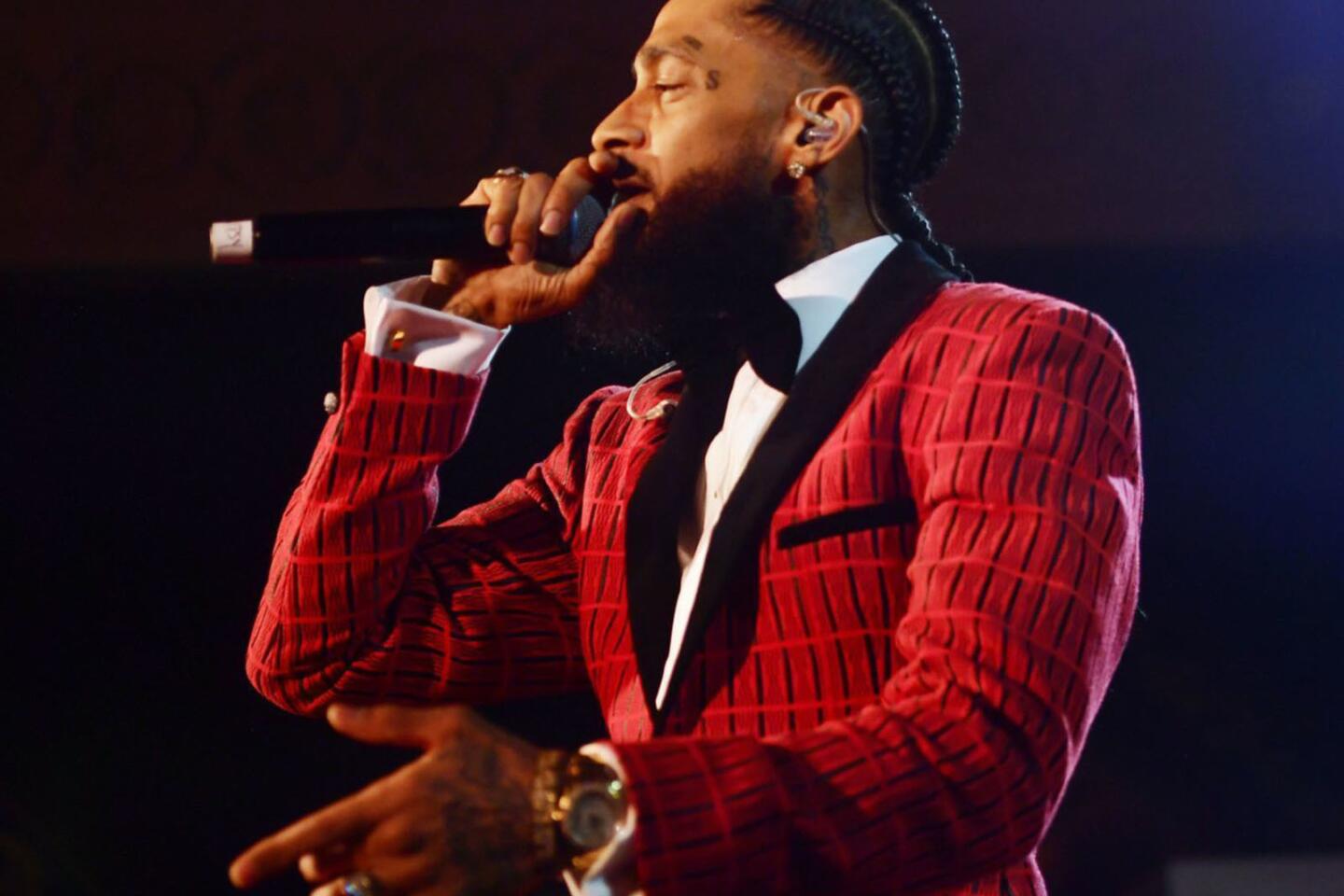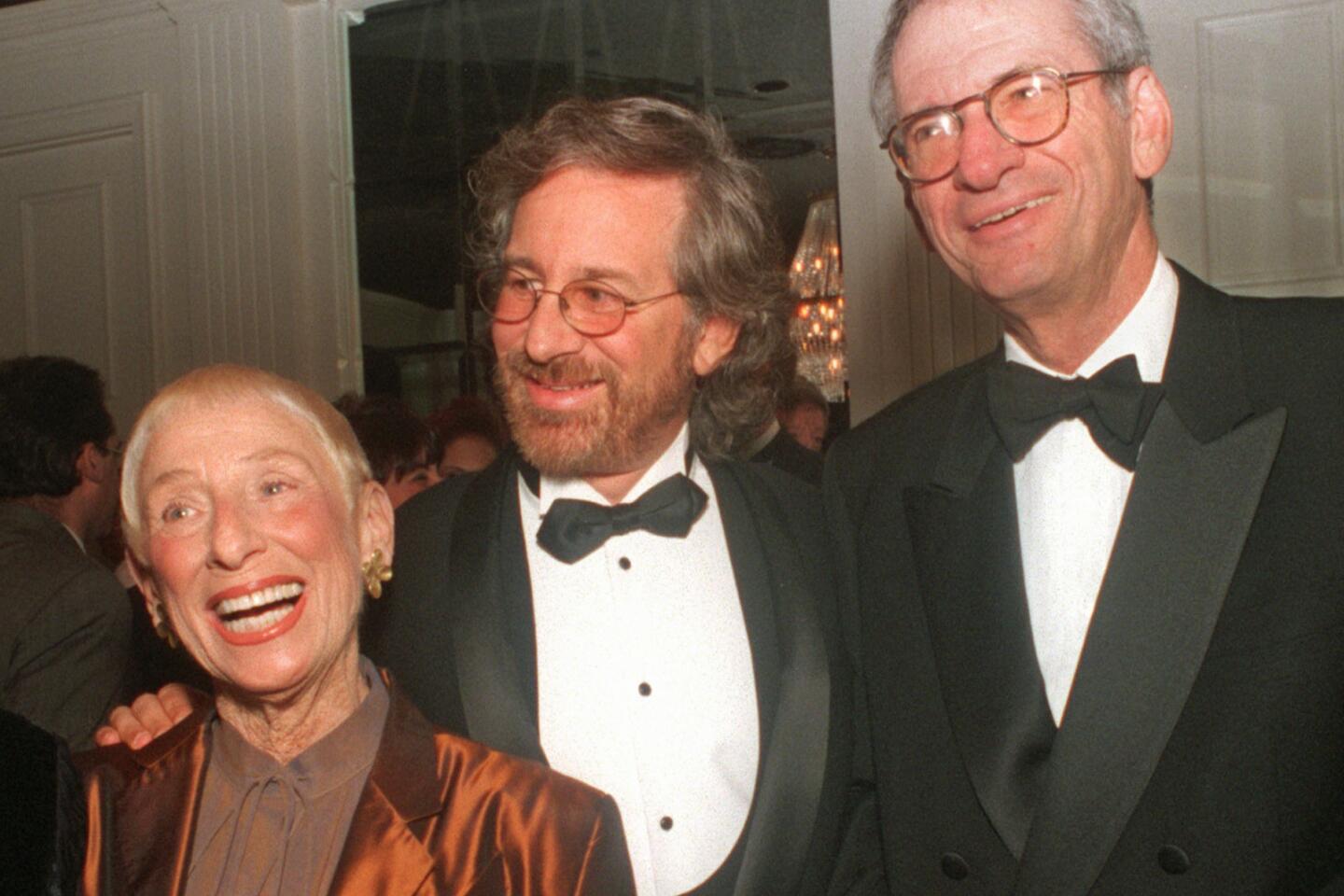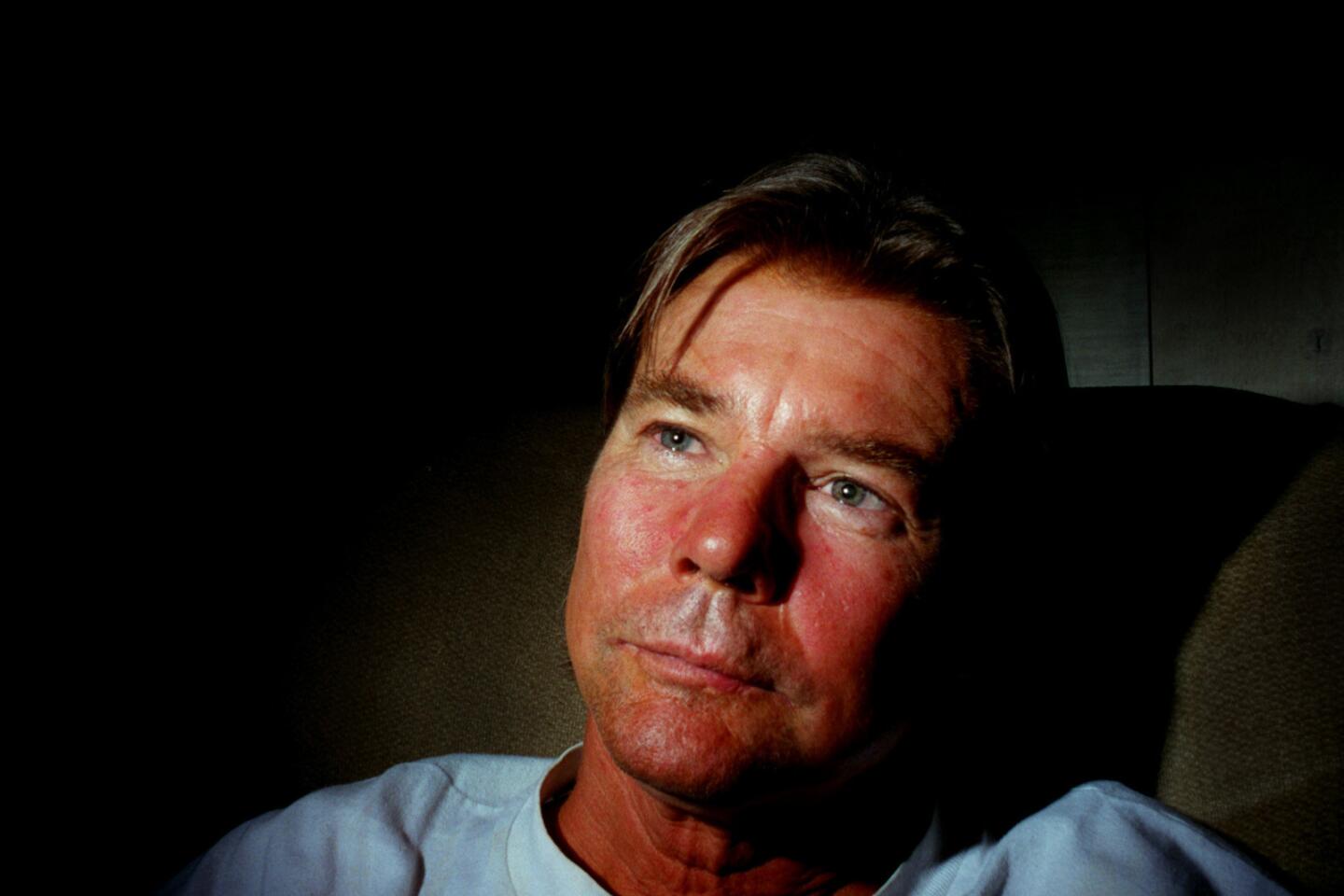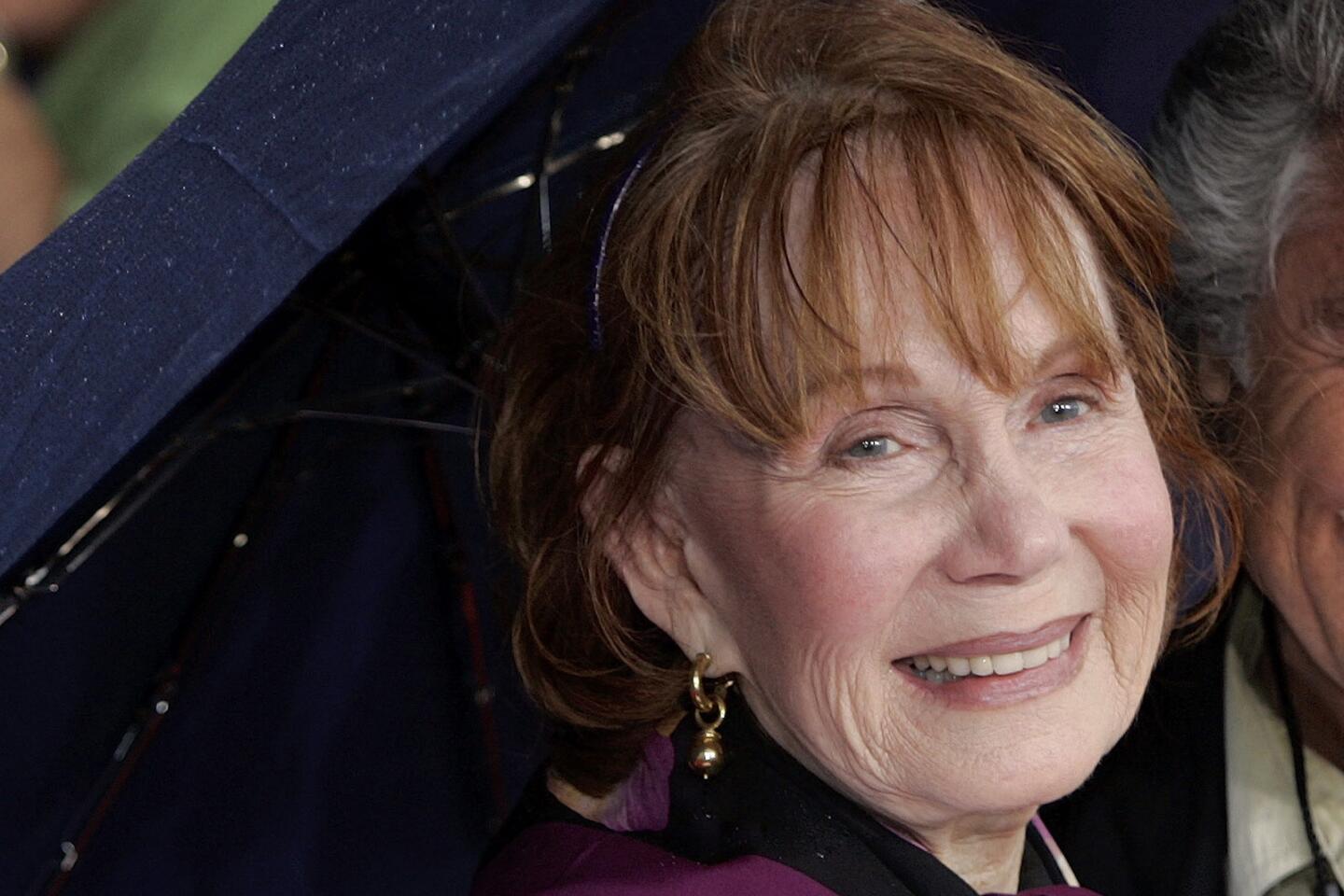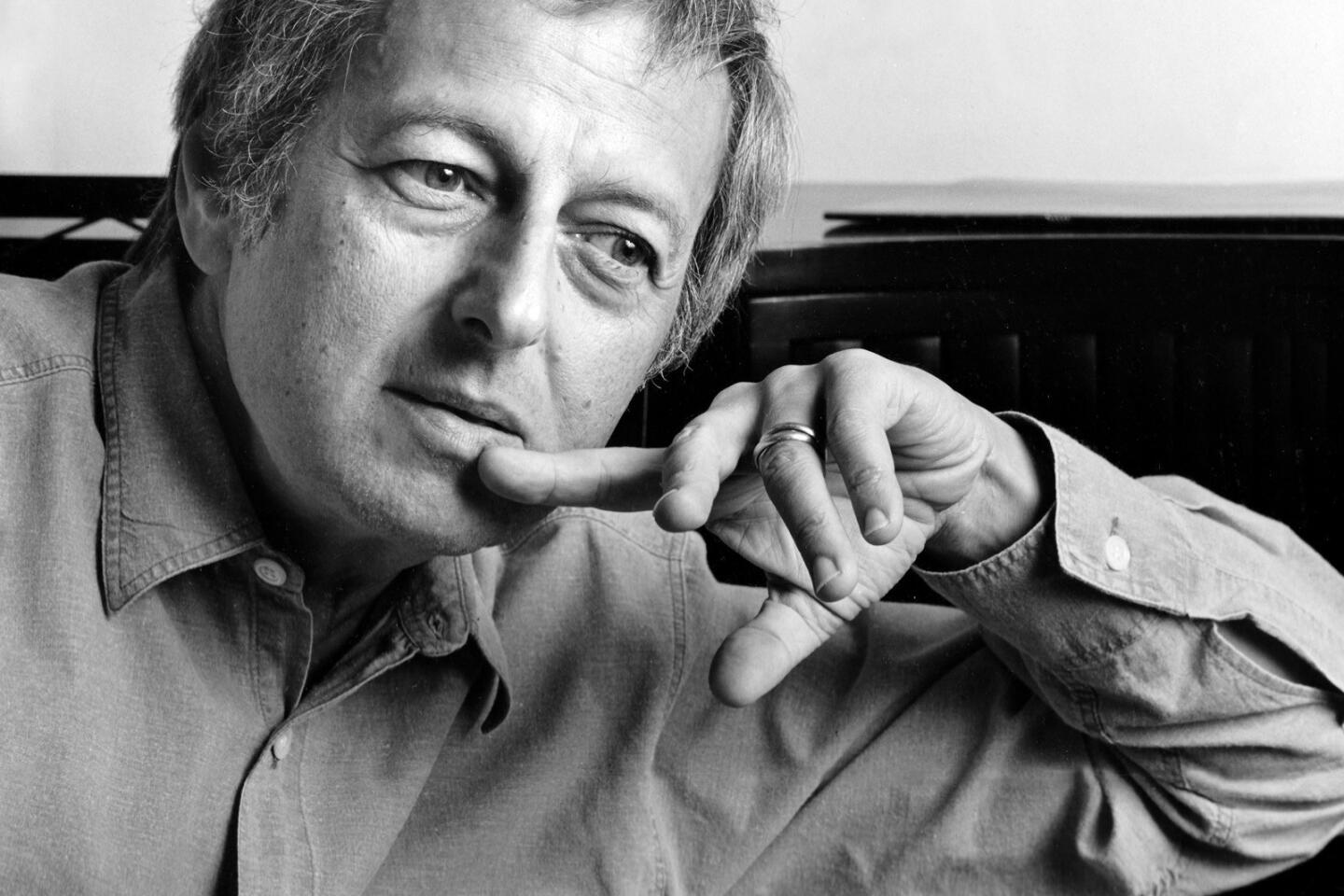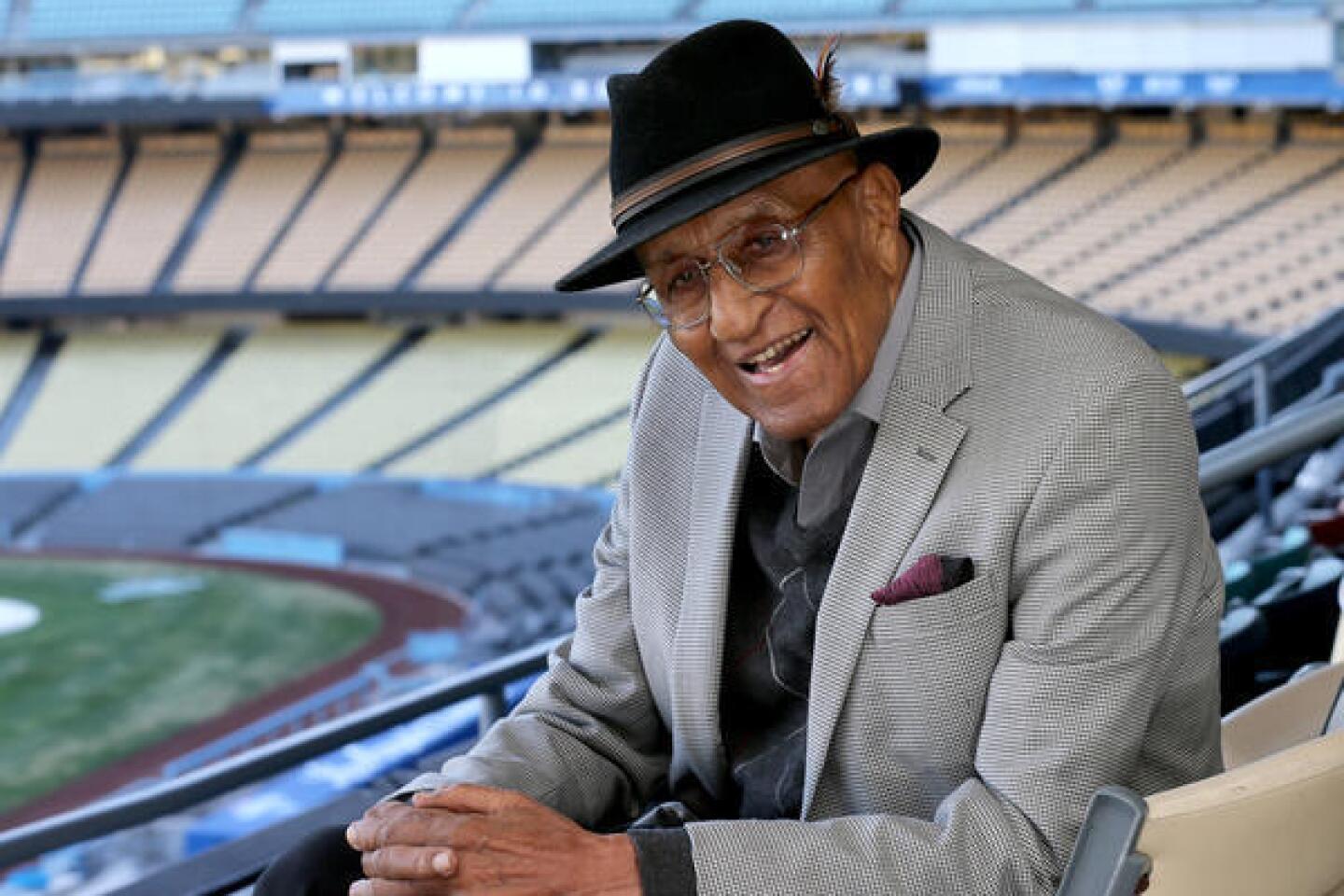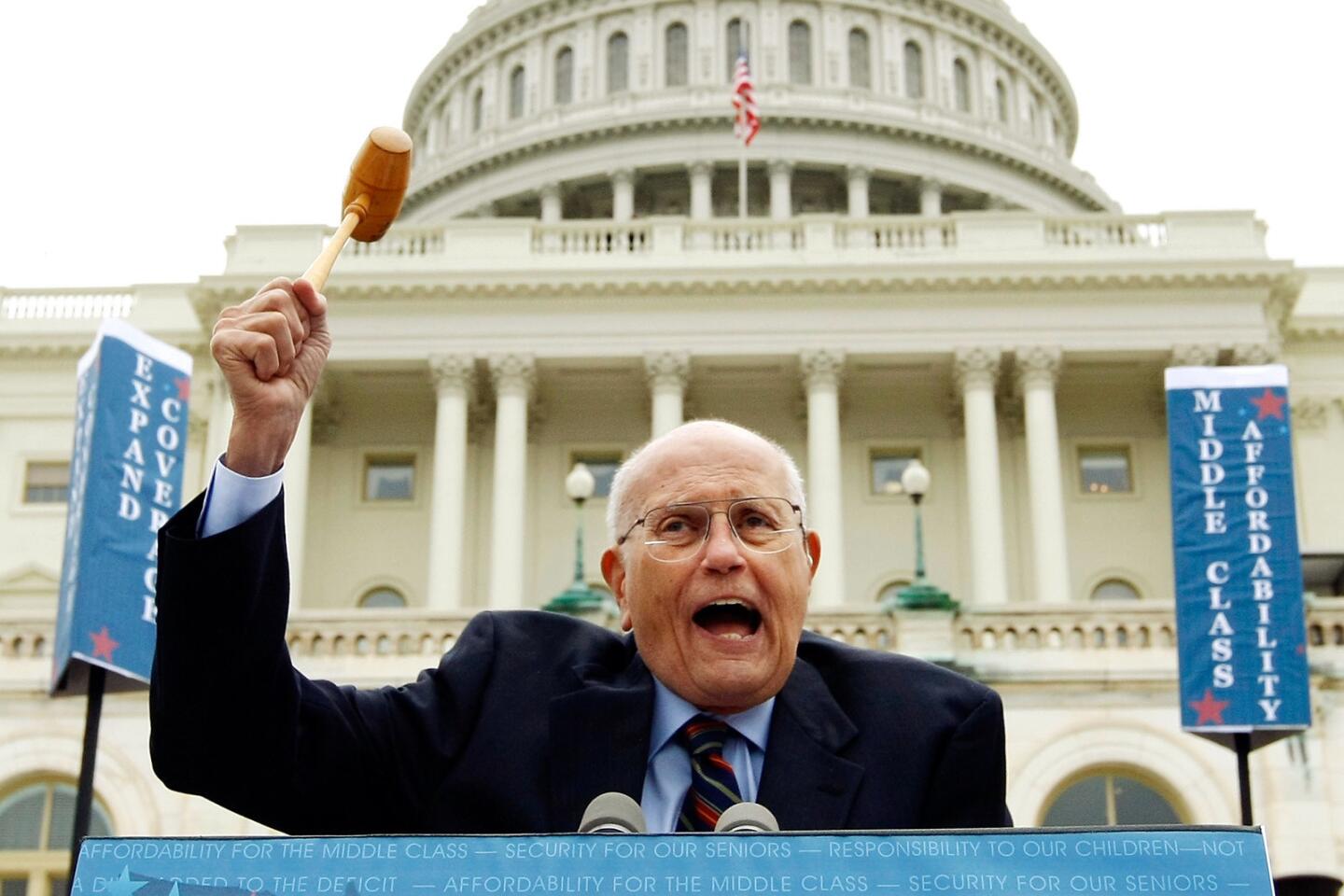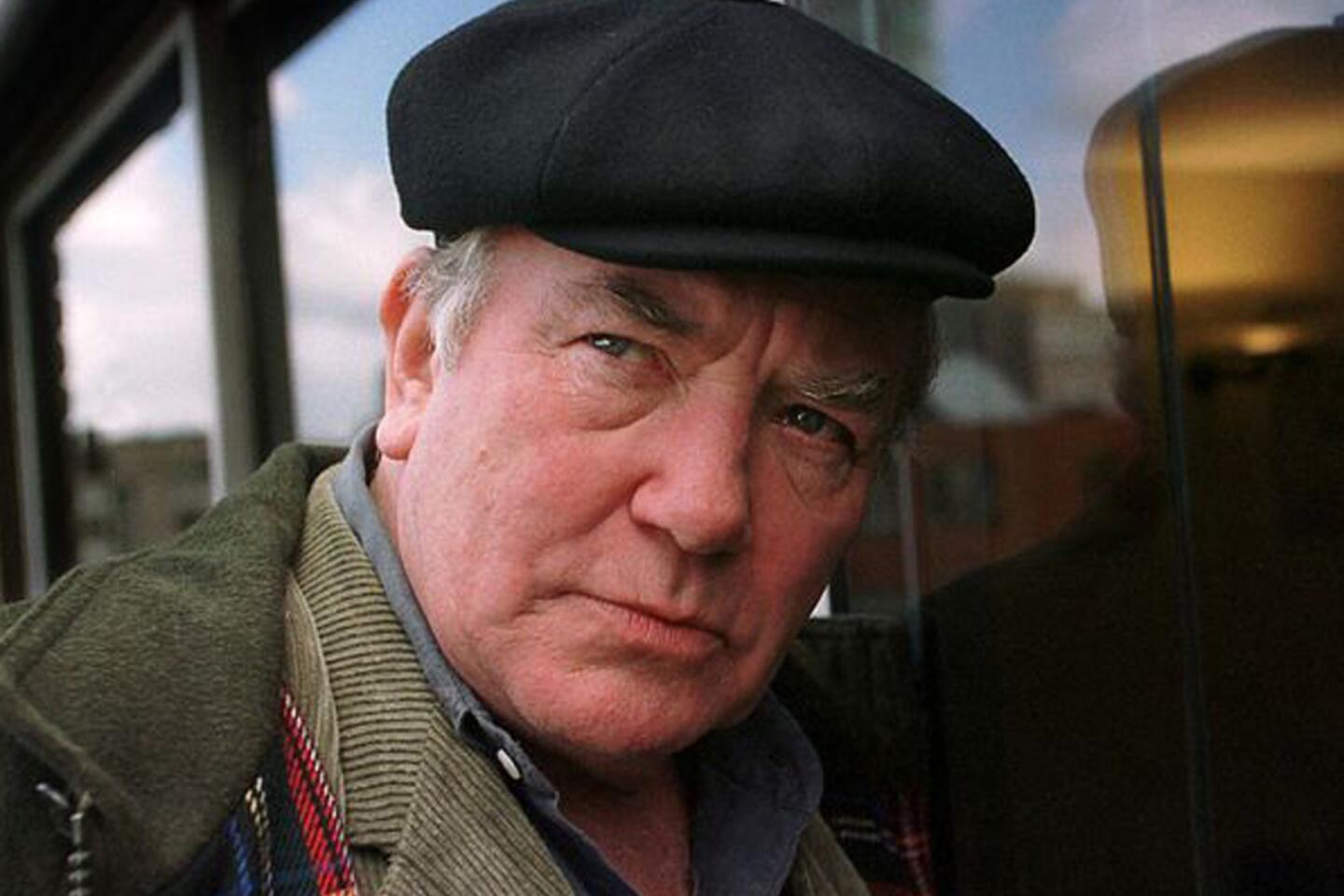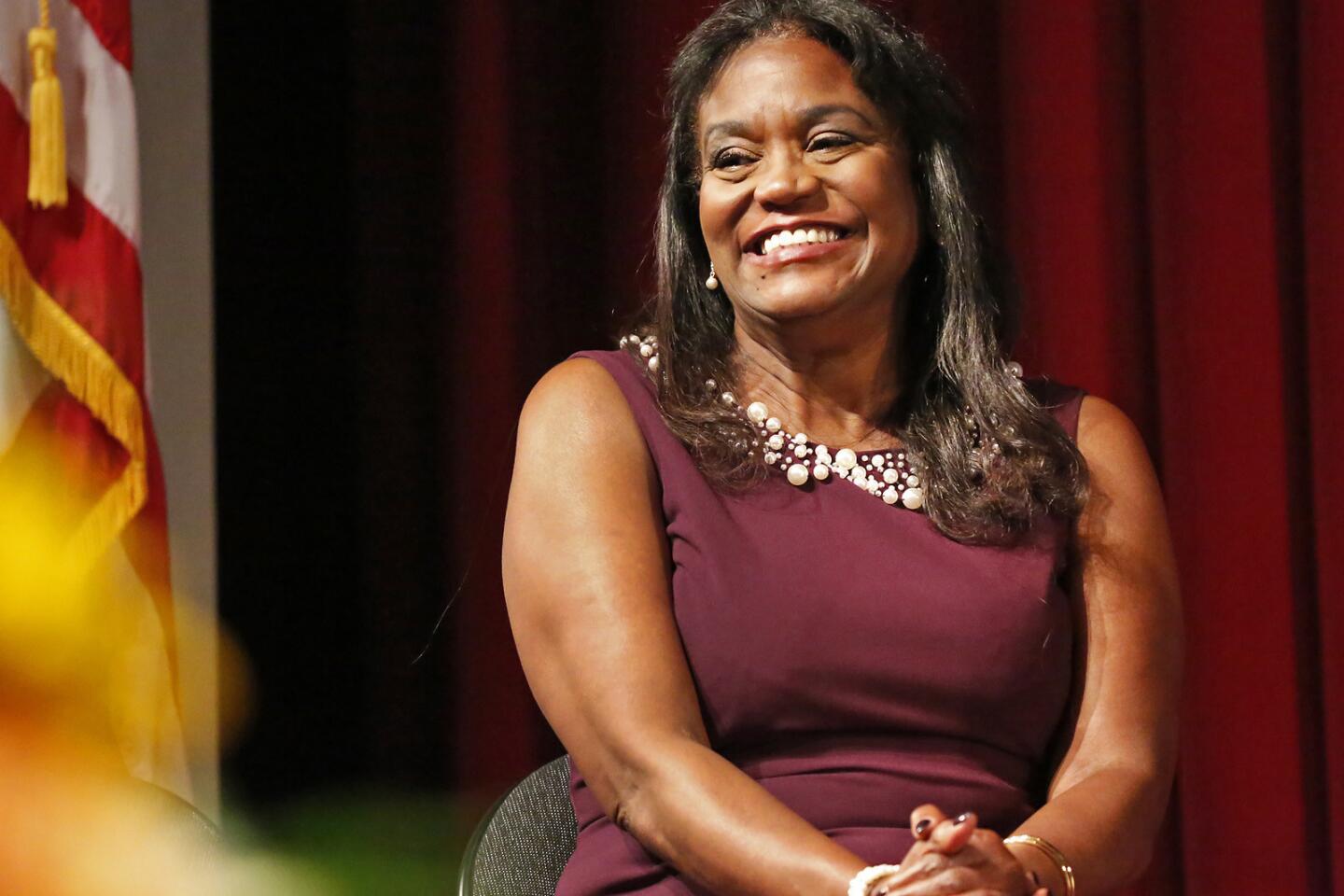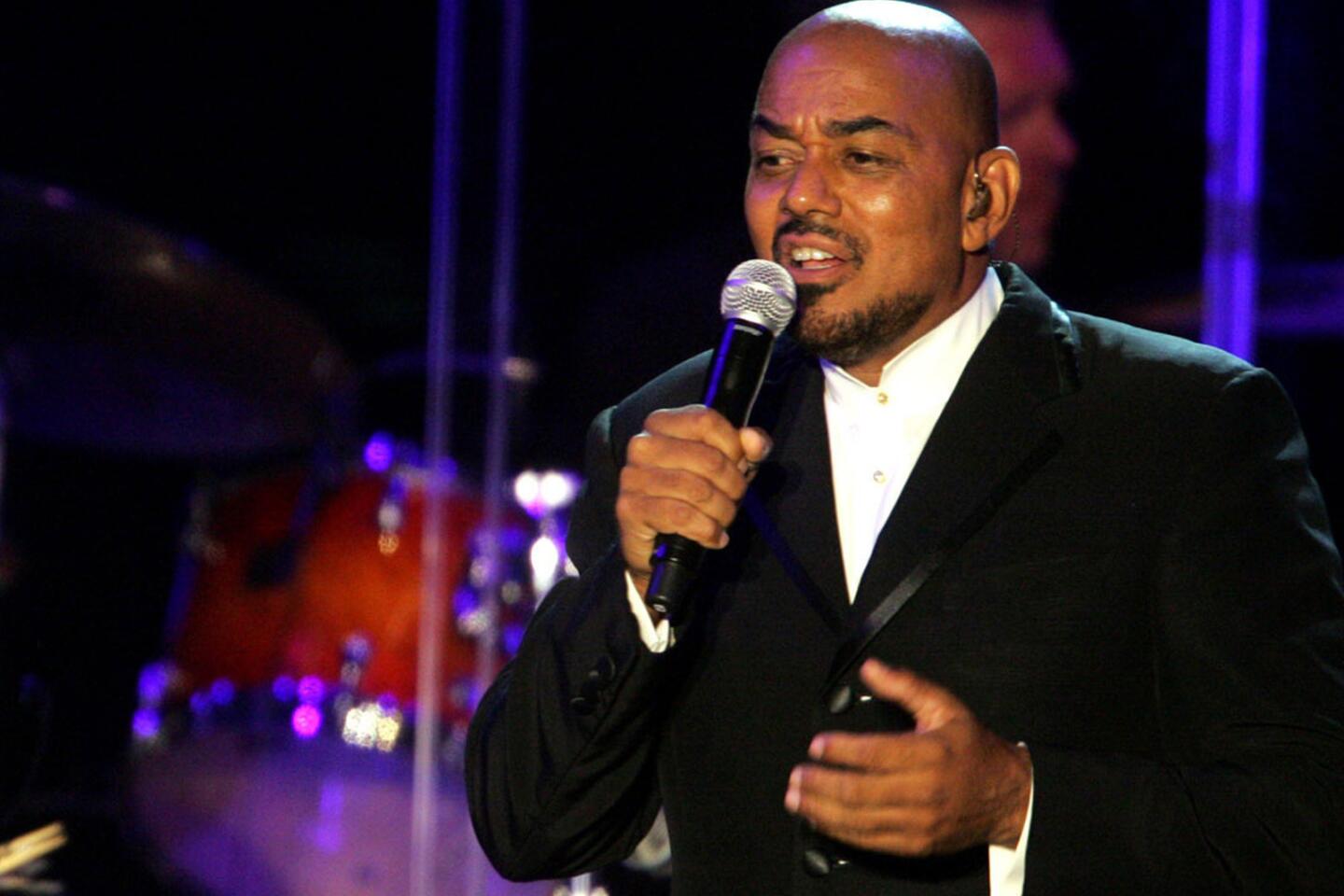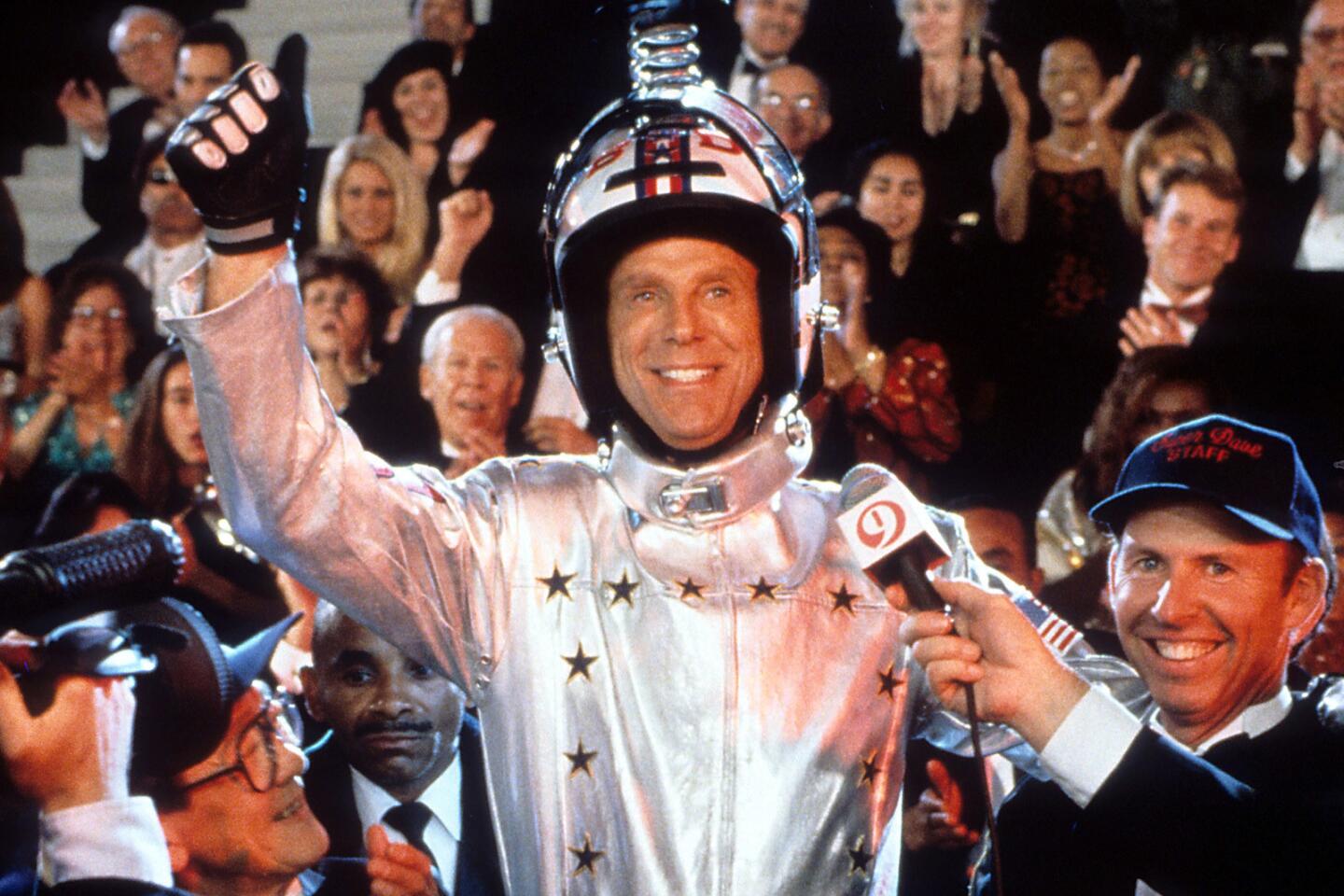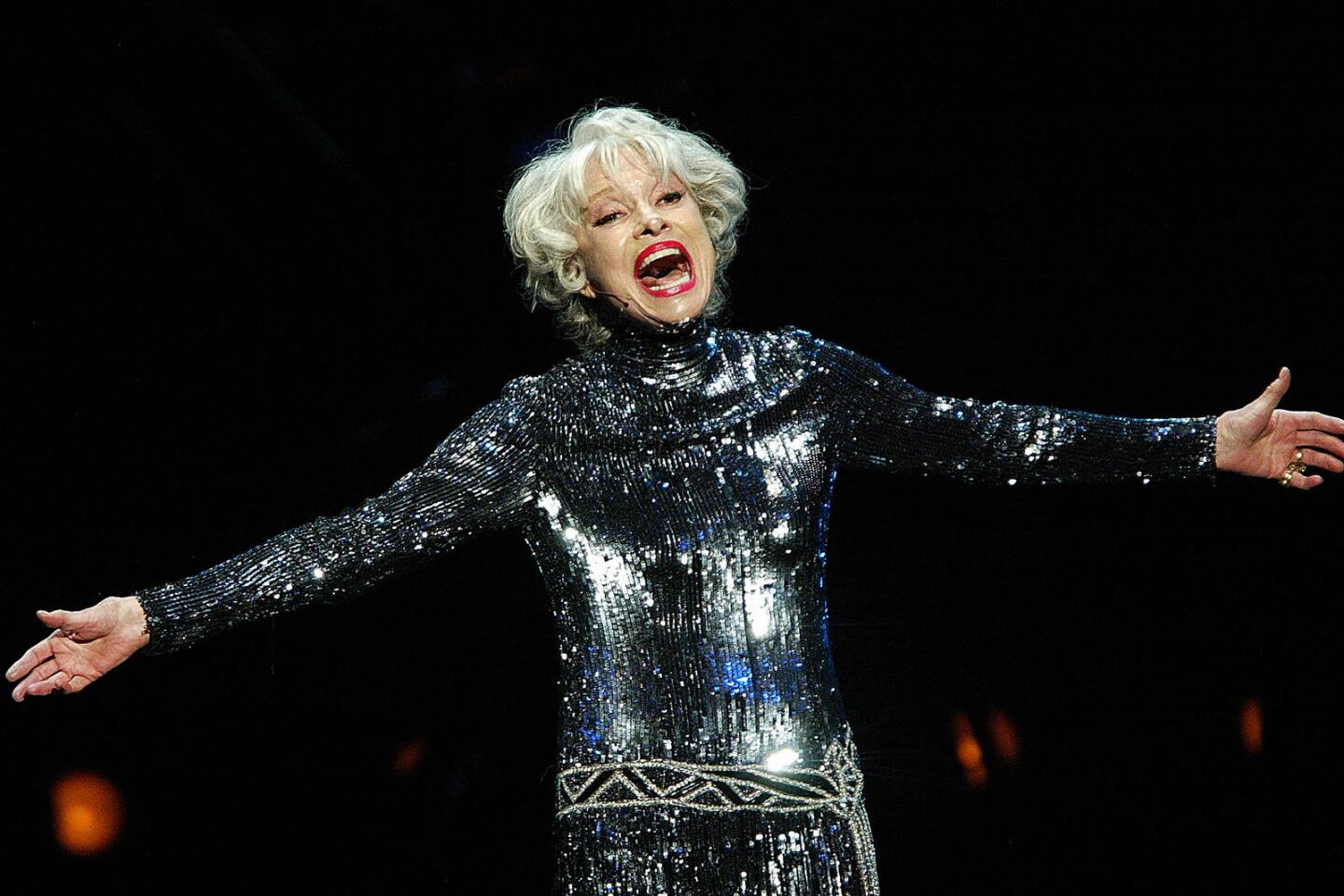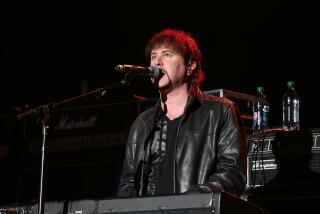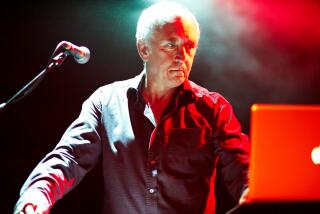Rush drummer Neil Peart, whose virtuosity at the drum kit made him one of the most accomplished instrumentalists in rock history, has died after a battle with brain cancer, according to the group’s official Twitter account. He was 67.
The Canadian musician and lyricist, who died Tuesday according to the Twitter post, joined in 1974 with singer-bassist Geddy Lee and guitarist Alex Lifeson in the progressive rock trio, which was beloved by fans for music that blithely defied the strictures of simple three-chord pop music of the ’50s and ’60s.
For the record:
8:37 a.m. Jan. 15, 2020An earlier version of this post referred to Rush’s album “Snakes & Arrows” as a 2003 release. It came out in 2007. The post also said that Neil Peart had said “Blah, blah, blah” into the microphone during a Rock and Rock Hall of Fame ceremony in Los Angeles. The comment was made by guitarist Alex Lifeson, not Peart.
In its place, Rush delivered expansive, often dizzyingly complex pop music compositions that, along with those of English prog-rock heroes Yes and Emerson, Lake & Palmer, had more in common with the barrier-bending music of 20th century composers such as Igor Stravinsky and Karl Stockhausen than with the straightforward blues- and country-rooted sounds of early rock ’n’ roll.
“He was a rare breed: For starters, how many drummers played drums and wrote lyrics?” asked Robert Santelli, founding executive director of the Grammy Museum in Los Angeles and coauthor, with E Street Band drummer Max Weinberg, of the 2004 book “The Big Beat: Conversations with Rock’s Greatest Drummers.”
“Neil was a very sophisticated, literate drummer whose lyrics were as unique and definitive as his drum style,” Santelli said. “He represented an era in rock ’n’ roll when complexity, sophistication and highly expressive, very mature playing with commitment to detail was what it was all about. The right drummer with the right band is always crucial, and he was exactly the right drummer for what Rush’s music needed.”
Peart often cited swing-era drummers Gene Krupa and Buddy Rich among his primary inspirations, although he also credited the Who’s Keith Moon, Cream’s Ginger Baker and Led Zeppelin’s John Bonham as major influences. He eventually would be celebrated, and sometimes derided, for his use of a 360-degree kit that incorporated dozens of drums, cymbals and other percussion instruments and accessories.
With it, however, Peart unleashed sophisticated and rhythmically dazzling accompaniment and provided lyrics to match, often philosophically provocative or illuminating takes on social or political issues.
In “Bastille Day,” from the group’s 1975 album “Caress of Steel,” he talked about that pivotal incident in French history, investing it with meaning that was relevant to the winding down of the Vietnam War:
Lessons taught but never learned
All around us anger burns
Guide the future by the past
Long ago the mold was cast
He also addressed his and his fellow musicians’ struggles in the music business in what became one of Rush’s signature songs, “The Spirit of Radio,” from the 1980 album “Permanent Waves.”
One likes to believe in the freedom of music
But glittering prizes and endless compromises
Shatter the illusion of integrity
As Rolling Stone noted in a 2015 profile of Peart preceding what would be Rush’s final concert tour, “He plays an outsize role in Rush, writing the lyrics, serving as the band’s designated conscience, taking solos so lengthy and structured that they get their own song titles. To a certain breed of rock musician, the drummer is a Clapton-in-’66-level god: [Nirvana/Foo Fighters founding member] Dave Grohl wept after meeting him.”
Peart was born Sept. 12, 1952, in Hamilton, Ontario, Canada, the eldest of four children of Glenn and Betty Peart. He grew up on the family farm in Hagersville, outside Hamilton.
He spoke of a warm, happy childhood, and of developing an interest in music as an adolescent, listening to radio stations in Canada and the northeast U.S. on a transistor radio he bought. He began to develop his skills as a musician with lessons on piano, his first percussion instrument.
But it was drumming that seemed built into his DNA, as he would use a pair of chopsticks to tap out rhythms on objects around the Peart household. His parents presented him on his 13th birthday with a pair of proper drumsticks, a practice drum and some beginner’s lessons, and the promise that if he kept with it for a year, he’d get a real drum kit.
They delivered, and at 14, he started classes at the Peninsula Conservatory of Music, and in short time joined his first band, the Eternal Triangle, with whom he performed his first drum solo.
After a trip to England in the early 1970s in hopes of expanding his professional horizons, he returned to Canada after 18 mostly unsuccessful months, although he did discover the writing of Ayn Rand, whose ideas found their way into some of his lyrics years later.
Ironically, upon his return home he joined a band named Hush but was urged by a friend to audition for Rush, whose original drummer, John Rutsey, left after the release of the debut album because of illness.
“He was one of the goofiest-looking guys I’d ever seen,” Lee told the Guardian in a 2018 interview. “He was very tall, lanky. He drove up in this little sports car, drums hanging out from every corner. He comes in, this big goofy guy with a small drum kit, and Alex and I thought he was a hick from the country. Then he sat down behind this kit and pummeled the drums — and us. As far as I was concerned, he was hired from the minute he started playing.”
“Rush” was the first in a series of gold and platinum albums that extended into the new millennium. The debut album achieved gold status for sales of 500,000 copies, but its successor, with Peart aboard, did even better, achieving platinum certification for sales topping 1 million copies.
It was that sophomore album, “Fly by Night,” on which Rush asserted its interest in the progressive wing of rock music, and which, for the first time, showcased Peart’s acumen behind the drum kit as well as his lyrics. Peart joined July 29, 1974, just two weeks before the group was slated to begin a new tour.
Some at their record company were perplexed by the fantasy elements and literary bent of Peart’s lyrics for songs such as the eight-part epic “By-Tor and the Snow Dog”: “Tobes of Hades, lit by flickering torchlight / The netherworld is gathered in the glare / Prince By-Tor takes the cavern to the north light / The sign of Eth is rising in the air.”
Peart later explained that he didn’t know what “tobes of Hades” meant but that it was a phrase his father had uttered on occasion.
The combination of such fanciful lyrics with cavorting music composed by Lee and Lifeson clicked with fans and gave Rush an identity.
“Neil Peart wasn’t just the new drummer; he was the spark that pushed them to greatness,” the Ultimate Classic Rock website asserted in naming “Fly by Night” to its list of the top 100 ’70s rock albums.
Rush released several more albums in the ’70s that showed slow but steady sales, the most successful being 1976’s “2112,” which spent 34 weeks on Billboard’s 200 Albums chart and was certified triple platinum by the Recording Industry Assn. of America.
The 1980s were even more rewarding for the band, as “Permanent Waves” in 1980 shot to No. 4 on the Billboard album chart, and nine more studio albums reached the Top 10 up through “Snakes & Arrows” in 2007.
In a 2015 interview with Drumhead Magazine, Peart said: “Lately Olivia [his daughter] has been introducing me to new friends at school as ‘My dad — he’s a retired drummer.’ True to say — funny to hear. And it does not pain me to realize that, like all athletes, there comes a time to ... take yourself out of the game. I would rather set it aside than face the predicament described in our song ‘Losing It.’”
But that was far from the first time he’d referenced the idea of retirement. In his 2002 autobiography, “Ghost Rider: Travels on the Healing Road,” he revealed that he had told his bandmates to “consider me retired” at least as far back as 1997 at the funeral of his daughter Selena Taylor. She was killed at 19 in an automobile accident in Brighton, Ontario.
Peart attributed that loss to the death 10 months later of his wife, Jacqueline Taylor. She had also battled cancer, but Peart said he believed she had died of a broken heart because of their daughter’s death.
In 2013, the band was voted into the Rock and Roll Hall of Fame. “Today, Rush is cited as an influence by such diverse bands as Metallica, Foo Fighters, Nine Inch Nails, Rage Against the Machine, Primus, Pantera, Tool, Death Cab for Cutie, the Mars Volta, the Smashing Pumpkins, Queensryche and Dream Theatre,” critic Rob Bowman wrote for the threesome’s induction. “Metallica’s Kirk Hammett calls Rush ‘the high priests of conceptual rock.’”
In his induction speech for the group, Nirvana and Foo Fighters founding member Dave Grohl fed the numerous Rush fans on hand in Los Angeles what they wanted to hear after complaining vociferously about its absence from the hall for 13 years since it became eligible in 1999:
“The world is full of mysteries,” Grohl said from the stage. “Robert Johnson and the deal he made with the devil at midnight; Paul McCartney’s death in 1966 and his replacement by an exact double; Elvis sightings, Jim Morrison sightings, Axl Rose sightings. But there’s one mystery that has eclipsed them all,” eliciting a round of cheers from the Rush faithful.
At the ceremony in Los Angeles, Lifeson humorously skewered the whole process with a speech in which he repeated the phrase “Blah, blah, blah” during the group’s turn at the microphone.
News on Friday of Peart’s death quickly sparked a deluge of responses from fellow musicians.
Beach Boys creative leader Brian Wilson credited him as “one of the great drummers” and wrote, “I feel real bad about this — he was way too young” on his Twitter feed.
Black Sabbath founding member Geezer Butler tweeted, “Sad to hear of Neil Peart passing. RIP.”
Actor-musician Jack Black wrote, “The Master will be missed — Neil Peart RIP #RushForever.”
Peart is survived by his wife, Carrie, and their daughter, Olivia Louise Peart.
2/33
Pioneering shock jock Don Imus was one of radio’s most popular and polarizing figures. Born in Riverside, he became a top broadcaster in New York, but he also sparked a national firestorm in 2007 with a racist remark about the Rutgers University women’s basketball team. He was 79. (Richard Drew / Associated Press)
3/33
Cokie Roberts covered Washington from Jimmy Carter to Donald Trump for NPR and ABC News. A co-anchor of the ABC Sunday political show “This Week” from 1996 to 2002, Roberts devoted most of her attention to Congress, where her father Hale Boggs was a House majority leader until his death in 1972. She was 75. (Donna Svennevik / Walt Disney Television via Getty)
4/33
T. Boone Pickens followed his father into the oil and gas business and built a reputation as a maverick, unafraid to compete against industry giants. In the 1980s, Pickens sought riches on Wall Street by leading bids to take over big oil companies including Gulf, Phillips and Unocal. Even when he failed to gain control of his targets, he scored huge payoffs by selling shares back to the company and dropping the hostile takeover bid. He was 91. (Riccardo Savi / Getty Images)
5/33
When Robert Mugabe took over as Zimbabwean president in 1980, he was celebrated as a hero in the liberation war against Britain. But after international sanctions, a series of fraudulent elections and an economic collapse sparked by the seizure of white-owned farms, Mugabe become a pariah and retired in 2017 rather than face impeachment. He was 95. (Tsvangirayi Mukwazhi / Associated Press)
6/33
David Koch was the aide de camp to Charles, his older brother, as the two leveraged the family fortune to push American politics to the right. The Koch brothers pushed the boundaries of dark money in politics and fueled a backlash against environmental regulations and government programs such as healthcare and mass transit. He was 79. (Phelan M. Ebenhack / Associated Press)
7/33
Peter Fonda was the son of a classic Hollywood star and a key player in the 1969 countercultural road trip saga “Easy Rider,” which he co-wrote and produced. The screenplay earned Fonda his first Academy Award nomination; his second came in the lead actor category for the 1997 independent film “Ulee’s Gold.” He was 79. (AP)
8/33
Hard-line Chinese premier Li Peng was best-known for ending the 1989 Tiananmen Square protests with a bloody crackdown by troops. A keen political infighter, he spent two decades at the pinnacle of power before retiring in 2002, leaving a legacy of prolonged economic growth and authoritarian control. He was 90. (AP)
9/33
Chris Kraft, shown with President Reagan in 1981, never flew in space but was the creator and longtime leader of NASA’s Mission Control. The legendary engineer served as flight director for all Mercury flights and seven of the Gemini flights, helped design the Apollo missions and later oversaw the beginning of the shuttle era at Johnson Space Center. He died just two days after the 50th anniversary of Apollo 11’s moon landing. He was 95. (AP)
10/33
Supreme Court Justice John Paul Stevens joined the court as a centrist Republican but emerged in his later years as the leading voice of its liberal bloc. Appointed by President Ford, Stevens played a key role in decisions that preserved a woman’s right to abortion, maintained a strict separation of church and state, and put limits on the death penalty. He was 99. (AP)
11/33
Billionaire Ross Perot blazed across America in the 1990s as a third-party presidential candidate and won nearly 19% of the popular vote in the 1992 election, finishing third behind Democrat Bill Clinton and Republican President George H.W. Bush. The diminutive Texan was an early tech entrepreneur who founded Electronic Data Systems, a computer services company, in 1962 with $1,000 in savings. He was 89.
(Peter Muhly / AFP/Getty Images) 12/33
Pitcher Tyler Skaggs grew up an Angels fan in Santa Monica and joined the organization as a first-round draft pick. He battled injuries throughout his career but started 24 games last season and showed signs of dominance this year. He was 27.
(Charlie Riedel / AP) 13/33
Judith Krantz wrote blockbuster romance novels including “Scruples” and “Princess Daisy” that sold more than 80 million copies worldwide. Her books have been translated into more than 50 languages, and seven have been adapted as TV miniseries, with her late husband, Steve Krantz, serving as executive producer for most. She was 91.
(Aaron Rapoport / Getty Images) 14/33
Italian director Franco Zeffirelli was best-known for his films, including the 1968 critical and box office hit “Romeo and Juliet” and a 1990 “Hamlet” with Mel Gibson. His massive opera productions included a version of Puccini’s “La Boheme” that became the most-often presented production in the Metropolitan Opera’s history. He was 96.
(Paolo Cocco / AFP/Getty Images) 15/33
Danish-born socialite Claus von Bulow, left, shown with attorney Alan Dershowitz in April 1985, was convicted in 1982 and then acquitted three years later on two counts of attempting to murder his American heiress wife, Sunny, with injections of insulin. The high-profile case has been called one of the most sensational courtroom dramas in modern U.S. history. He was 92.
(Charles Krupa / AP) 16/33
Herman Wouk explored the moral fallout of World War II in the Pulitzer Prize-winning “The Caine Mutiny” (1951) and other widely read books. Determined to produce a “great war book,” Wouk wrote “The Winds of War” and its sequel, “War and Remembrance,” in the 1970s, and the two sweeping novels became the basis for a pair of television miniseries. He was 103.
(Douglas L Benc Jr / AP) 17/33
Architect I.M. Pei had a client list that included French President Francois Mitterrand for the Louvre and Jacqueline Kennedy Onassis for the John Fitzgerald Kennedy Library in Boston. Among several Pei projects in the Los Angeles area are the former Creative Artists Agency headquarters in Beverly Hills and the Ronald Reagan UCLA Medical Center. He was 102.
(Pierre Gleizes / AP Photo) 18/33
Tim Conway came to prominence on television as a bumbling ensign in “McHale’s Navy” opposite Ernest Borgnine from 1962 to 1966, then became a regular on “The Carol Burnett Show,” where he famously developed a knack for making costar Harvey Korman crack up. He also starred in the “Apple Dumpling Gang” movies in the 1970s and gained fame with a new generation as the voice of Barnacle Boy on “SpongeBob SquarePants.” He was 85.
(George Brich / AP) 19/33
John Singleton’s 1991 debut, “Boyz n the Hood,” was an inner-city coming-of-age story that earned two Oscar nominations and put the young filmmaker in the company of emerging black moviemakers such as Spike Lee and Mario Van Peebles. Singleton went on to direct “Poetic Justice” (1993), “Higher Learning” (1995) and “Baby Boy” (2001), which featured Taraji P. Henson at the start of her career. He was 51.
(Christopher Polk / AFP/Getty Images) 20/33
Grammy-nominated rapper Nipsey Hussle was gunned down outside his Marathon Clothing store in the same South L.A. neighborhood where he was known as much for his civic work as he was for his hip-hop music. He was 33.
(Matt Winkelmeyer / Getty Images for Warner Music) 21/33
Sidney Sheinberg, right, with Steven Spielberg and Lea Adler, Spielberg’s mother, at a 1994 Beverly Hilton gala.
(Shepler, Lori / Los Angeles Times) 22/33
Jan-Michael Vincent was a golden boy of 1970s Hollywood action films and went on to star in the mid-1980s TV adventure series “Airwolf.” But his erratic behavior and cocaine consumption was a major reason “Airwolf” was canceled. He was 74 by most accounts, but the death certificate listed him as 73.
(Alex Garcia / Los Angeles Times) 23/33
Sitcom star Katherine Helmond had memorable roles as ditzy matriarchs in “Soap,” “Who’s the Boss?” and “Coach.” Her work as Jessica Tate on the 1970s parody “Soap” earned her seven Emmy nominations, and she was nominated again in 2002 for her guest role in “Everybody Loves Raymond.” Helmond also starred in director Terry Gilliam’s films “Brazil” and “Time Bandits.” She was 89.
(Chuck Burton / AP) 24/33
André Previn conquered L.A. with his artistic genius twice: first as an Academy Award winning composer of Hollywood movie music, then as music director of the Los Angeles Philharmonic. A conductor and pianist who toggled between classical, pop and jazz, Previn won Oscars for “My Fair Lady” (1964), “Irma la Douce” (1963), “Gigi” (1958) and “Porgy and Bess” (1959). He was 89.
(Patrick Downs/ Los Angeles Times) 25/33
Dodgers right-hander Don Newcombe was the first outstanding African American pitcher in the major leagues and in 1949 became the first to start a World Series game. The 6-foot-4, 240-pound hurler was also the first player in major league history to have won the rookie of the year, Most Valuable Player and Cy Young awards. He was 92.
(Luis Sinco / Los Angeles Times) 26/33
Michigan Democrat John Dingell Jr. used his considerable power in the House of Representatives to uncover government fraud and defend the interests of the automobile industry. Known as “Big John” and “The Truck” for his forceful nature and 6-foot-3-inch frame, Dingell was the longest-serving member of Congress in U.S. history. He was 92.
(Win McNamee / Getty Images) 27/33
Albert Finney starred in films as diverse as “Tom Jones,” “Annie” and “Skyfall.” One of the most versatile actors of his generation, he played an array of roles, including Winston Churchill, Pope John Paul II, a southern American lawyer and an Irish gangster. He was 82.
(Graham Barclay / For The Times) 28/33
Michelle King was the first African American woman to lead Los Angeles Unified School District. Her major accomplishment was pushing the graduation rate to record levels by allowing students to quickly make up credits for failed classes. She was 57.
(Al Seib / Los Angeles Times) 29/33
Grammy-winning singer and songwriter James Ingram topped the charts in the ‘80s with hits like “Baby, Come to Me” and “Somewhere Out There.” He also co-wrote the Michael Jackson hit “P.Y.T. (Pretty Young Thing).” He was 66.
(Stefano Paltera / AP) 30/33
Emmy Award-winning writer Bob Einstein was best known as stuntman Super Dave Osborne, whose feats always went wrong. The comedy veteran got his start writing for 1970s variety shows such as “The Smothers Brothers Comedy Hour,” and he later played Larry David’s devout friend Marty Funkhouser on HBO’s “Curb Your Enthusiasm.” He was 76.
(Archive Photos / Getty Images) 31/33
Carol Channing was a Broadway star best known for her enduring portrayal of the title character in the musical “Hello, Dolly!” A winner of three Tony Awards, including one for lifetime achievement, she appeared in the play at least 5,000 times. She was 97.
(Frederick M. Brown/Getty Images / Frederick M. Brown/Getty Images) 32/33
Mary Oliver, one of the country’s most popular poets, focused on spirituality, nature and New England. Her poems won the Pulitzer Prize in 1984 and the National Book Award in 1992. She was 83.
(Josh Reynolds / For the Times) 33/33
Herb Kelleher built Southwest Airlines into the biggest discount carrier and set the standard for budget air travel for more than three decades. He and co-founder Rollin King used a formula of short, no-frills trips that spawned dozens of imitators. He was 87.
(Ed Betz / AP) 